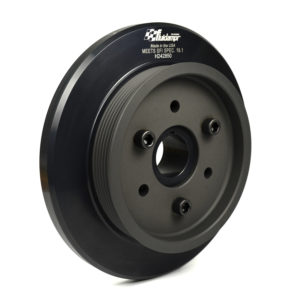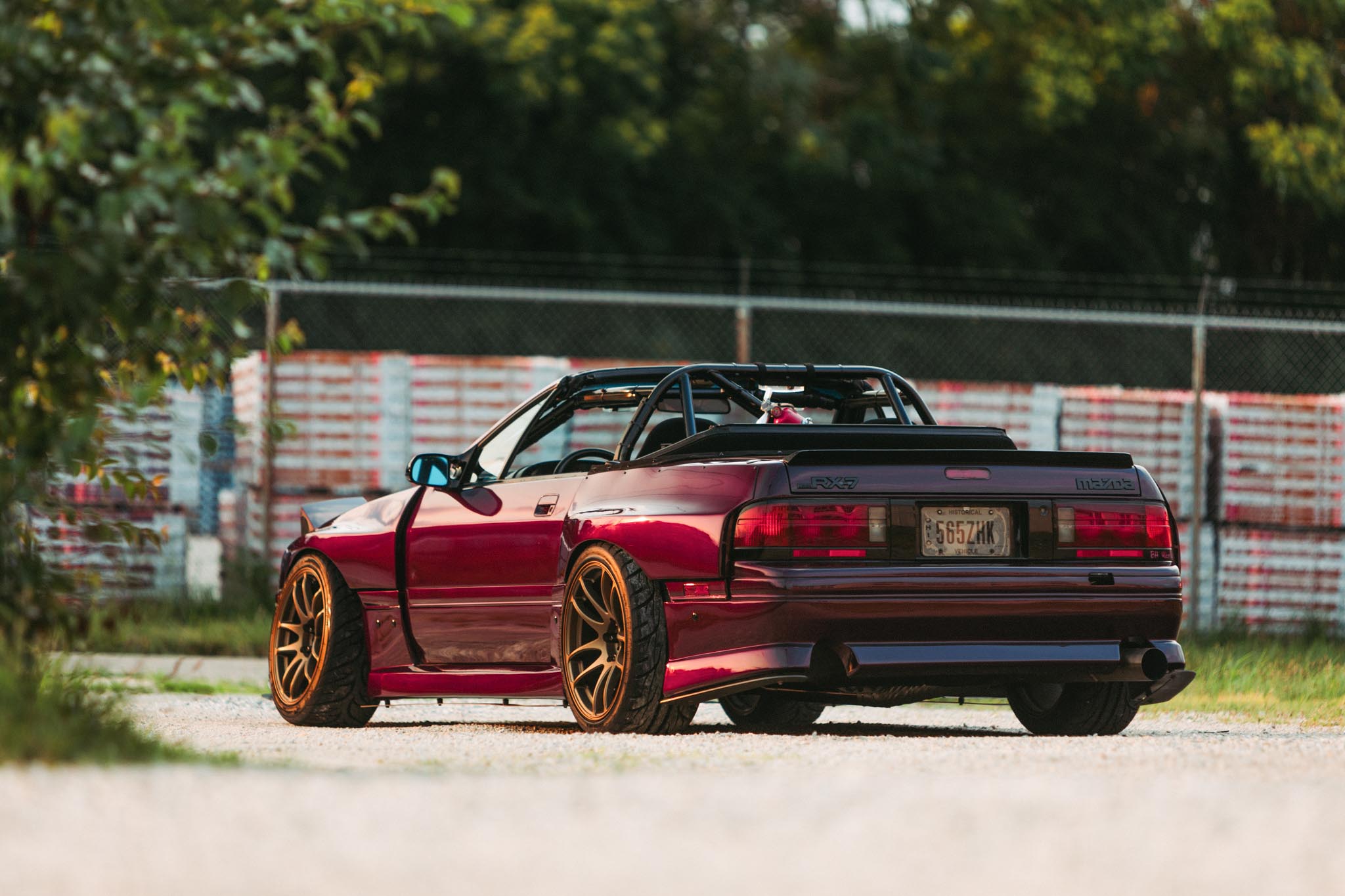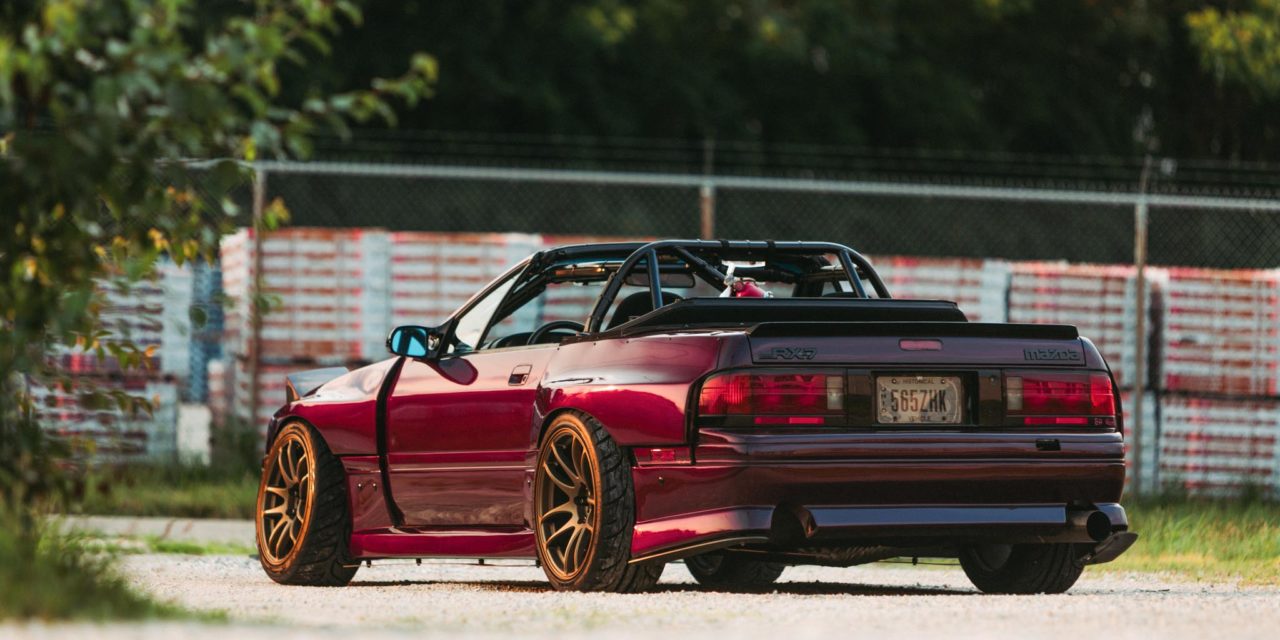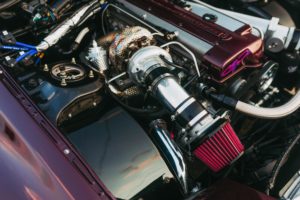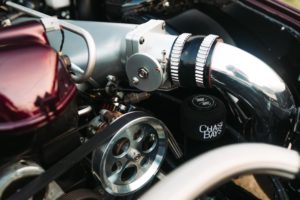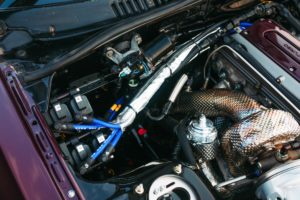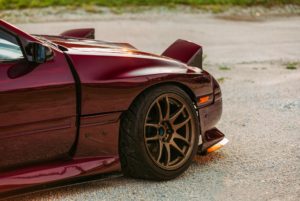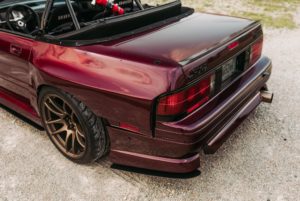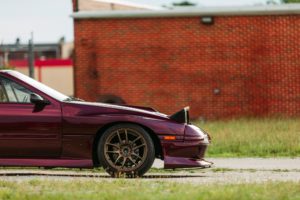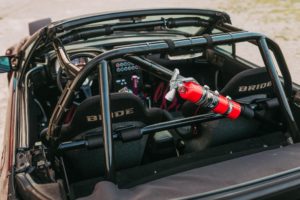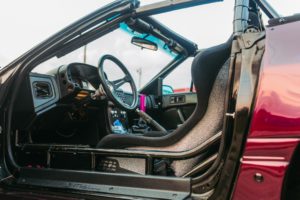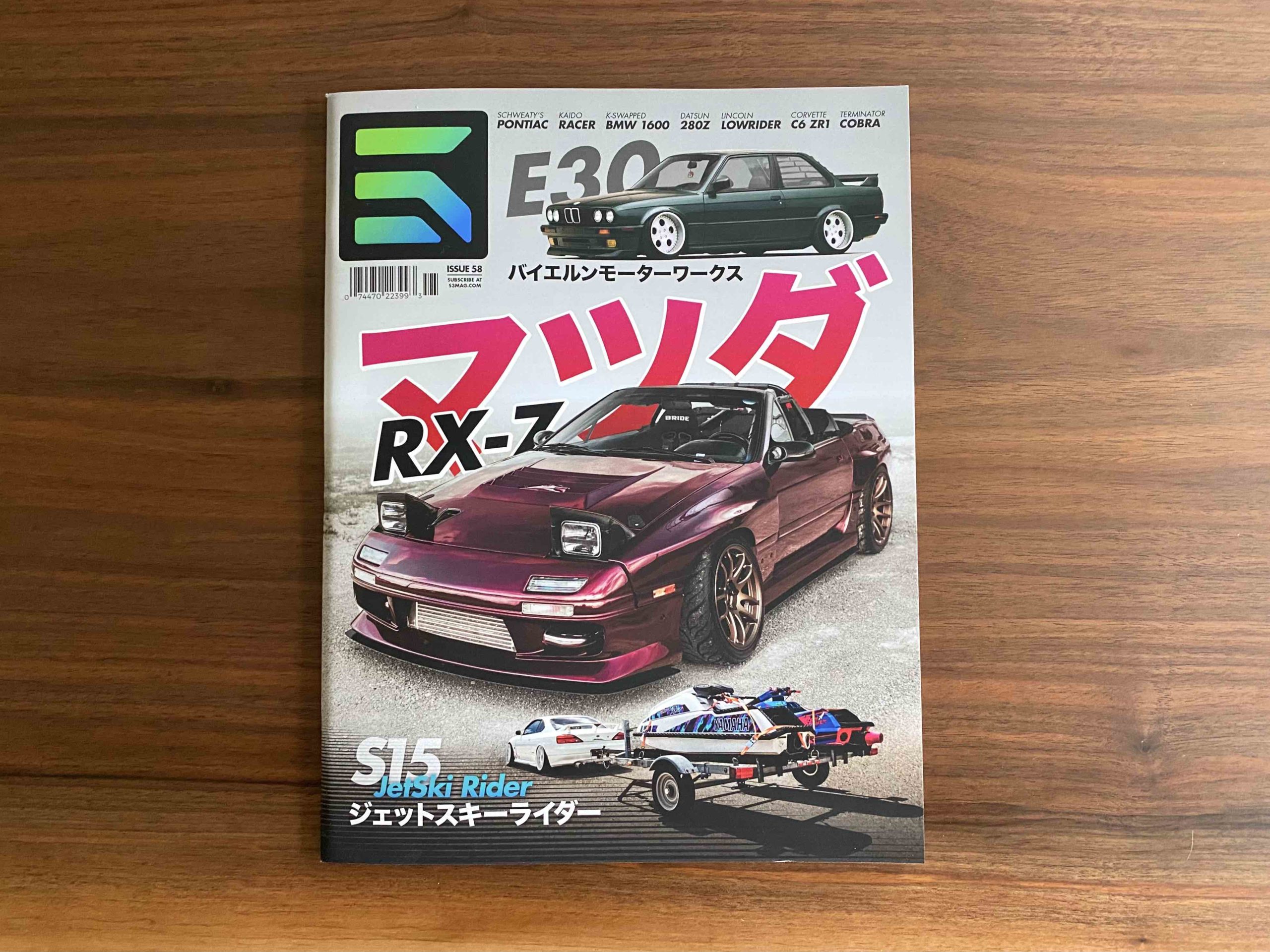JB Guillotte is one of those 1st-generation American drifters. He’s a self-proclaimed simple man… but I call BS lol. JB just knows what makes him happy, that’s all… and that can come across as simple a lot of the time. He’s also humble & smart. Damn smart. With a boatload of discipline to learn & persevere. There seems to be a welcoming energy around JB that draws you in. And there’s nothing simple about character traits like that.
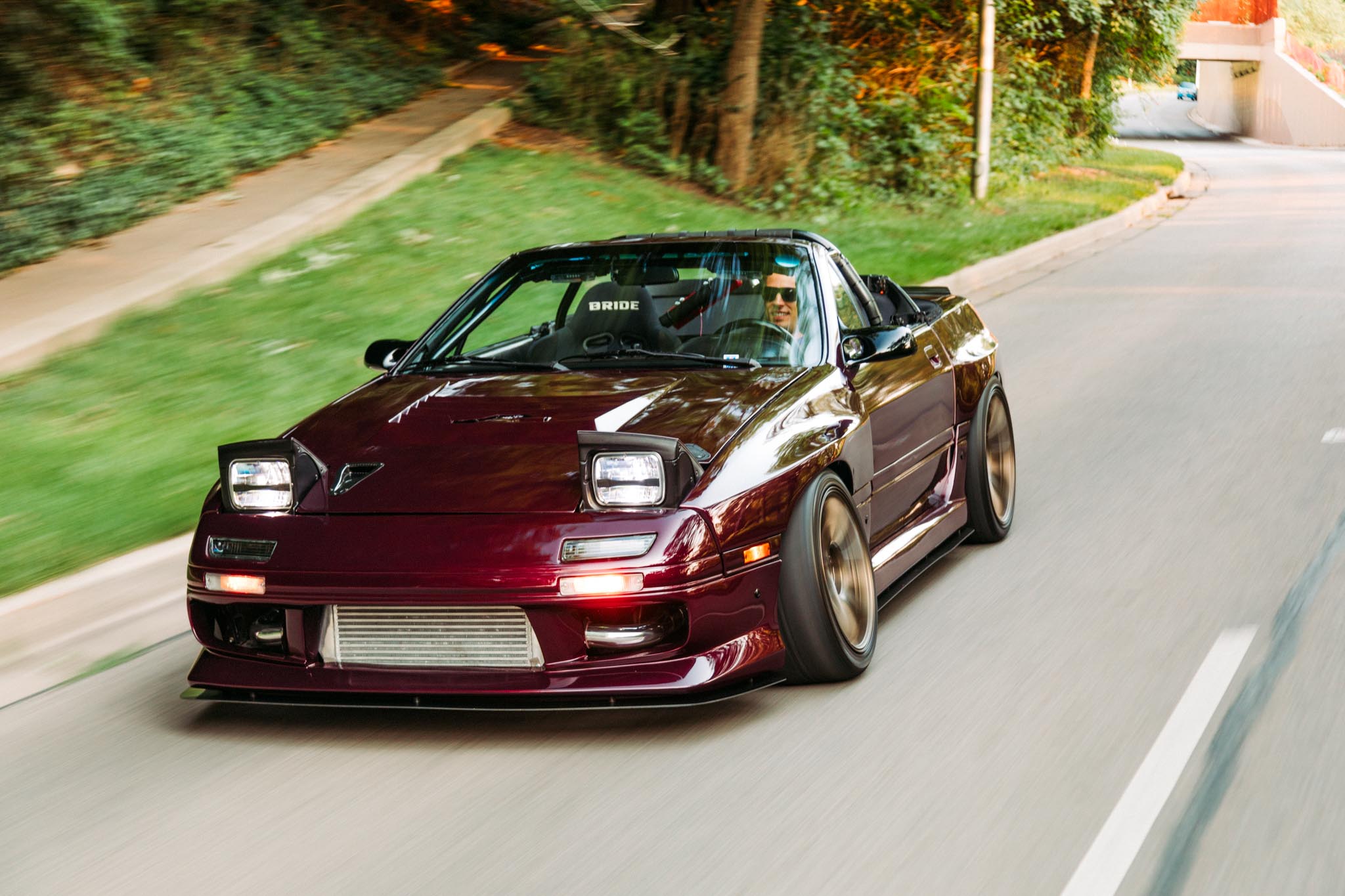
JB is a pilot by profession.
His great-grandfather flew biplanes in WWI… his grandfather flew C47 cargo planes in the Korean War… his other grandfather was on Navy destroyers in WWII. But that’s not all. His great uncle flew P-47 fighters in WWII… his father flew C17s in the Gulf War and instructed & flew P38s (supersonic jet). And finally, JB flew C17s in Afghanistan, and still flies them today.
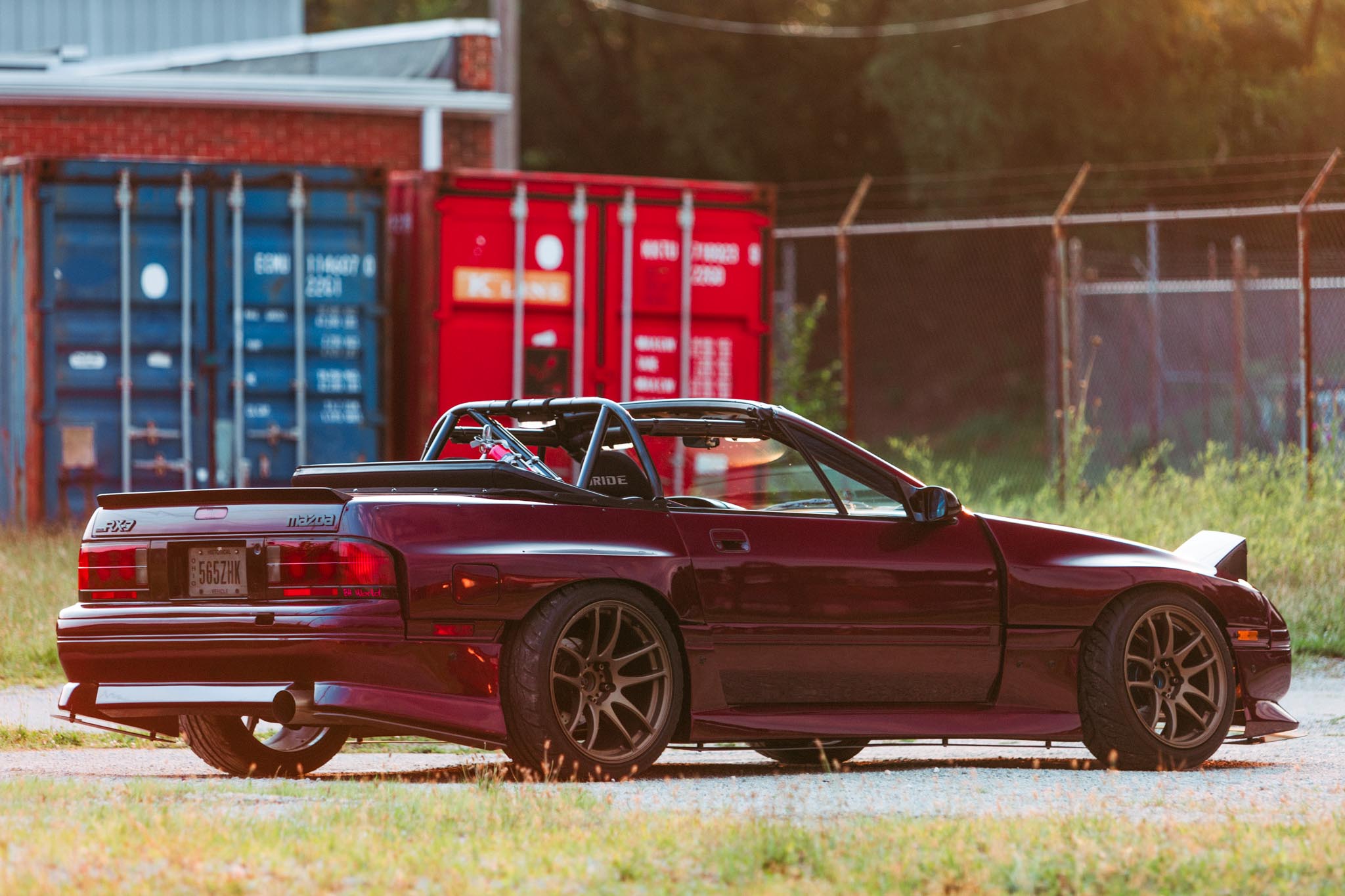
JB’s family comes from airplanes…
But for some reason, JB says he gets way more excited driving than flying. There’s something magnetic about automotive culture that draws him in. Cars & mechanics just excite him. Put it this way – JB likes to align cars… for fun lol! That’s just the way his mind works.
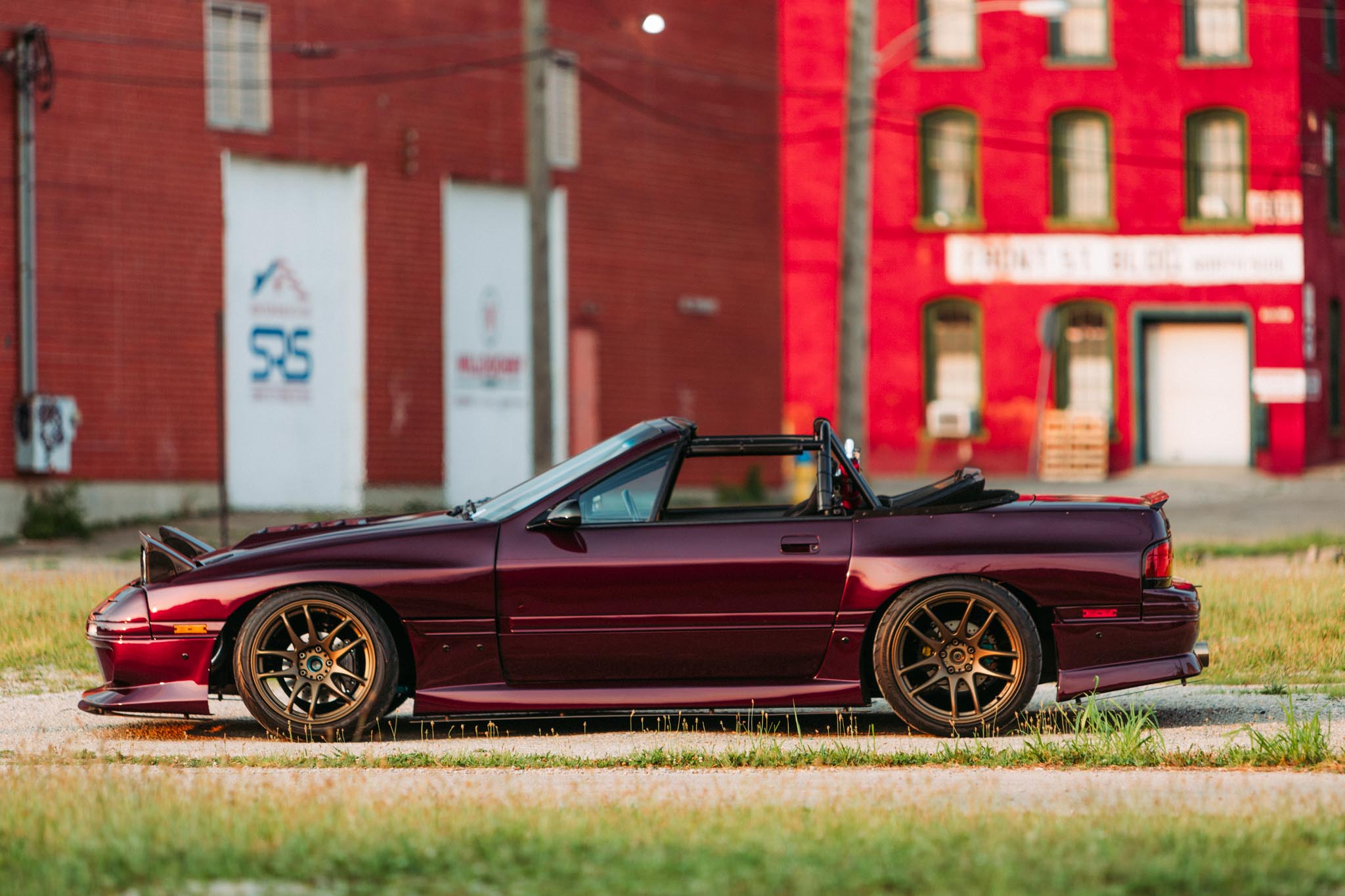
When it comes to the car world…
JB brings with him, a meticulous attention to functionality. With aviation, there’s zero margin for error. There’s no ‘zip-tie & send it’ attitude when you’re around airplanes. So a lot of that precision is just engrained into his process, and it naturally translates over to the automotive sector for JB. And it not just on the mechanics side… it’s on the driving side as well. JB has been trained to fly in formation, like the Blue Angels do. Very close quarters. And he said with a laugh, “Yeah that really stepped-up my tandem game for drifting.”
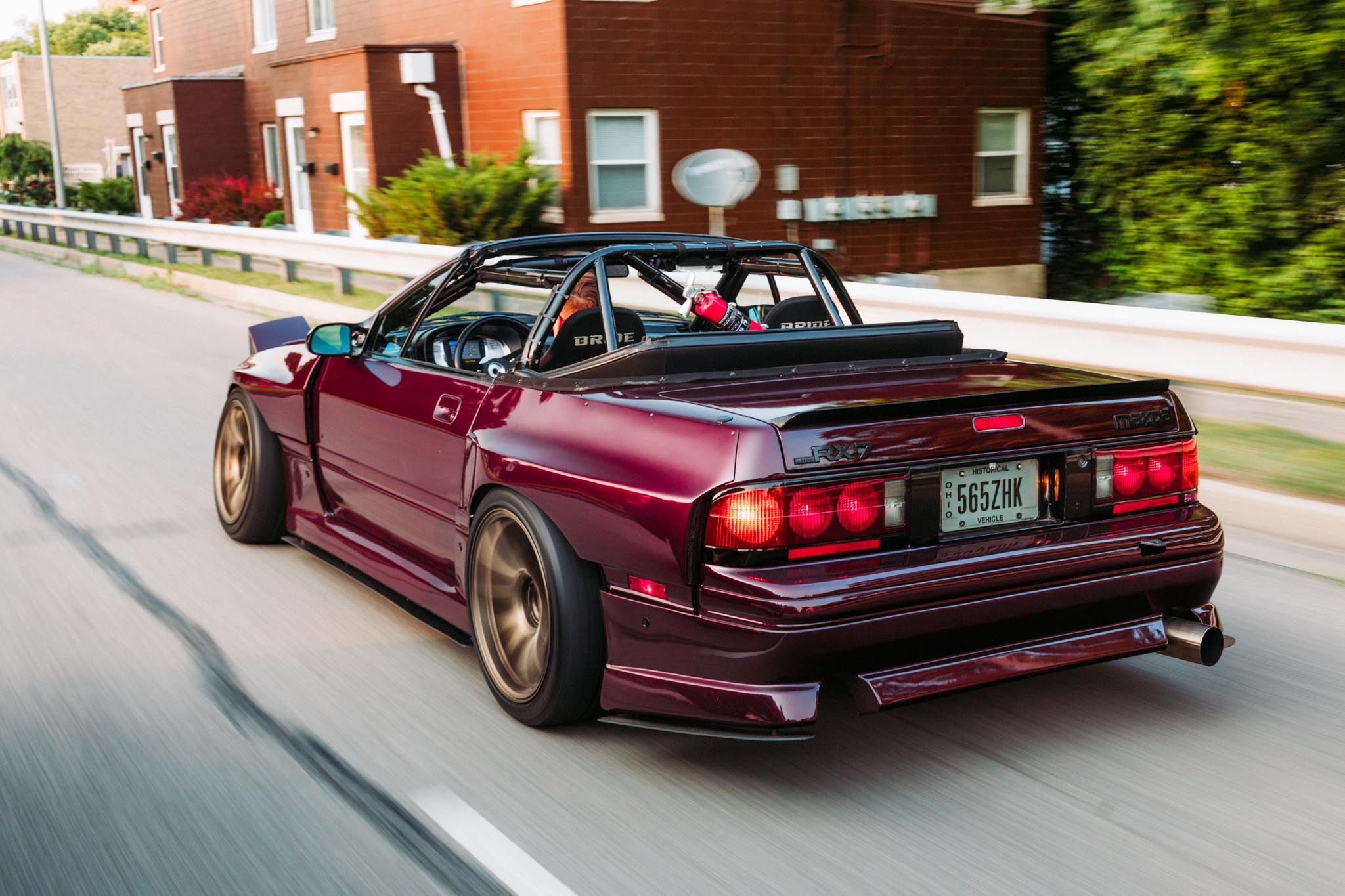
JB became obsessed with drifting in the early 2000’s.
And the guys on that early-2000s US drifting surge were hugely inspired by what was going on in Japan. You had to be… it wasn’t happening anywhere else. And the talent-level of the drivers coming out of Japan was absolutely incredible/insane. Nobody was driving cars like that here. And nobody was setting up cars like that here… to be able to do what they were doing. It’s was totally exciting & unchartered territory. At the time, Yokohama was sending drivers/teams to the US for drift demos at import/tuner events across the country. And it was giving people like JB an outlet to get their eyes on the cars & learn… and get even further inspired & motivated.
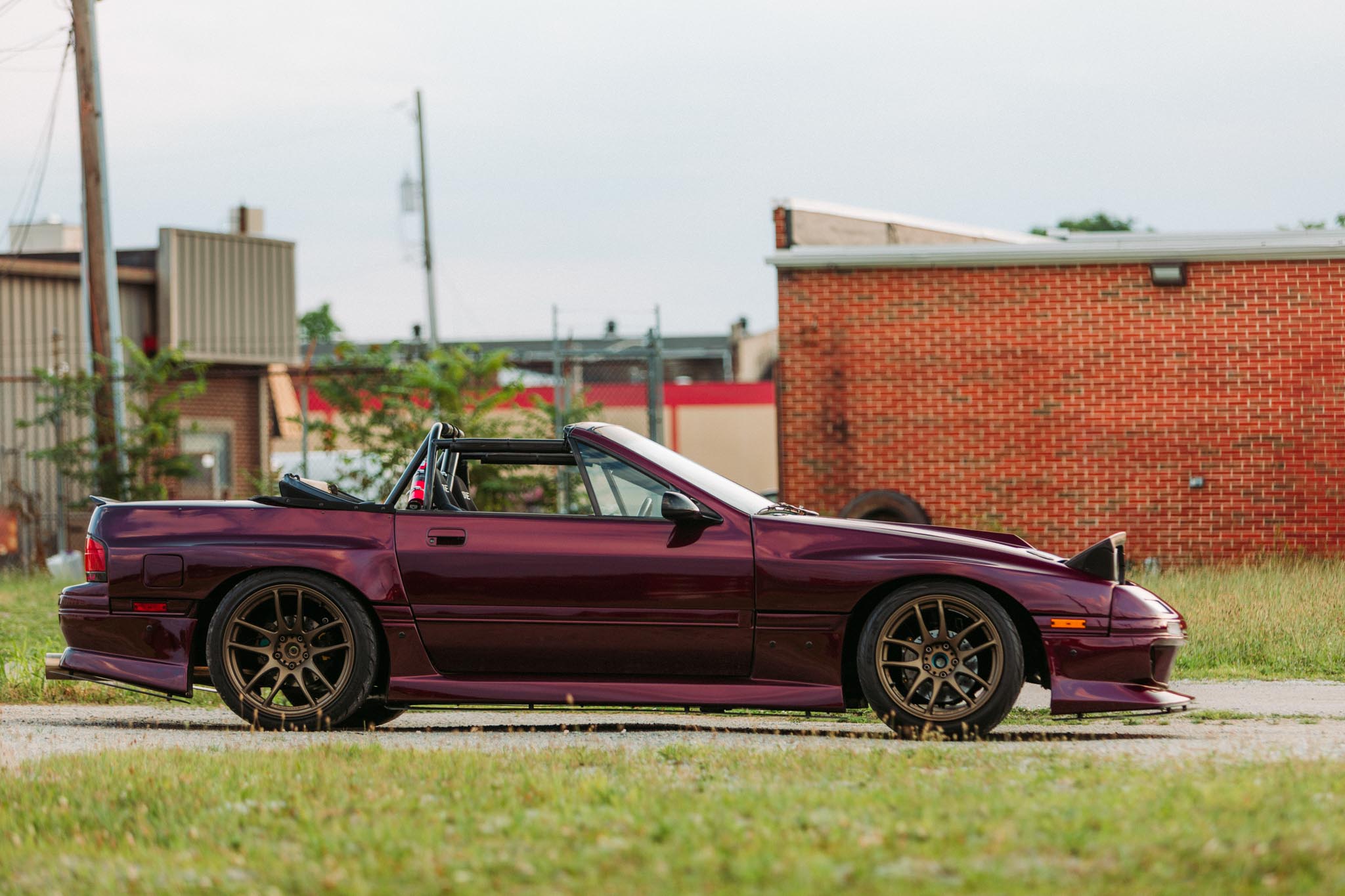
But back then, the drift scene was a lot more pure than it is now, even in Japan where it had been around for a while.
Or maybe I should say, it was just at a younger, more innocent, more grassroots stage. It wasn’t nearly as expensive as it is today. The cars competing weren’t that far off from what you could build in your garage. Drift cars were essentially just badass RWD street cars.
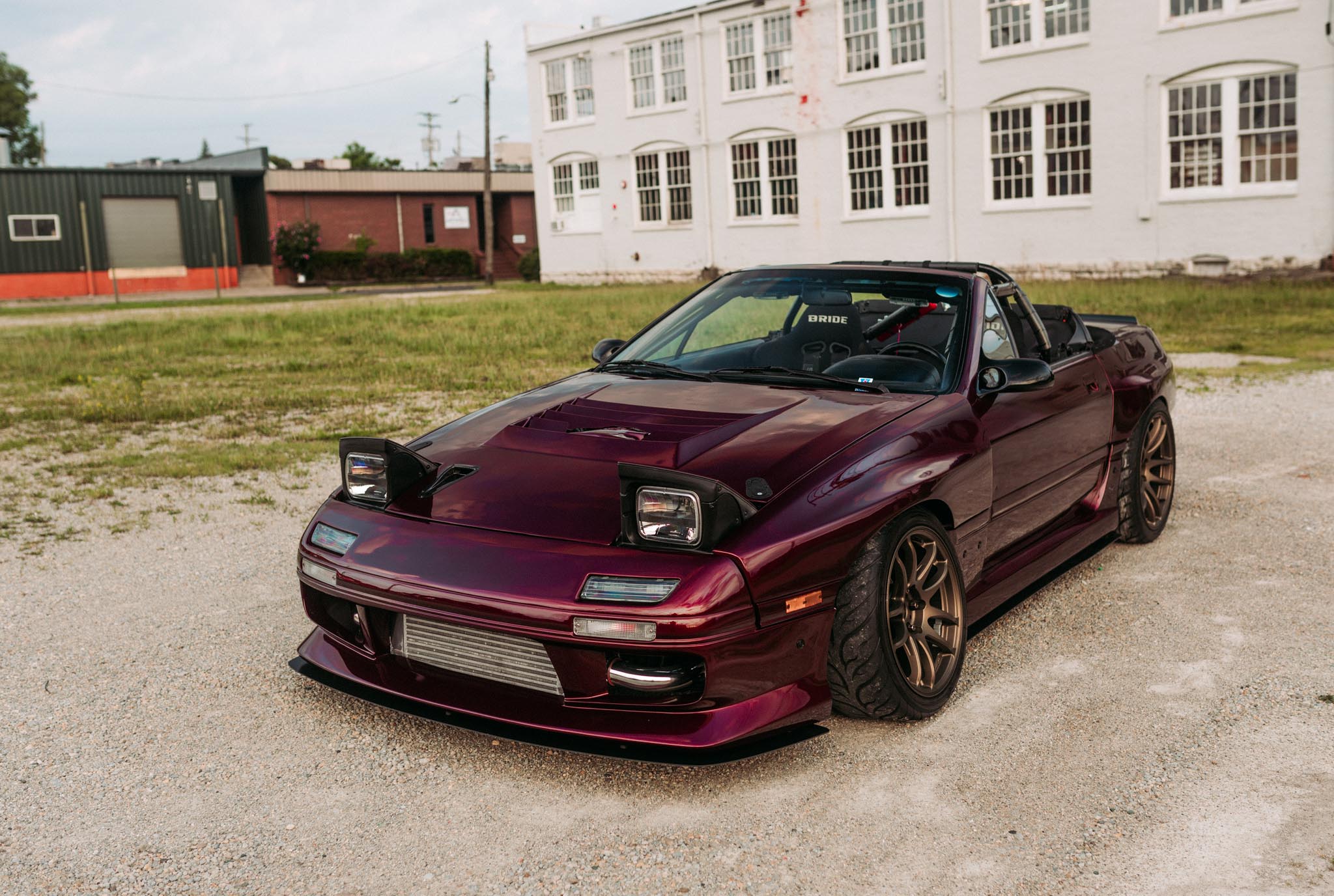
And then – the sponsorships got real.
That made the competition get real. And the cars went to the stratosphere.
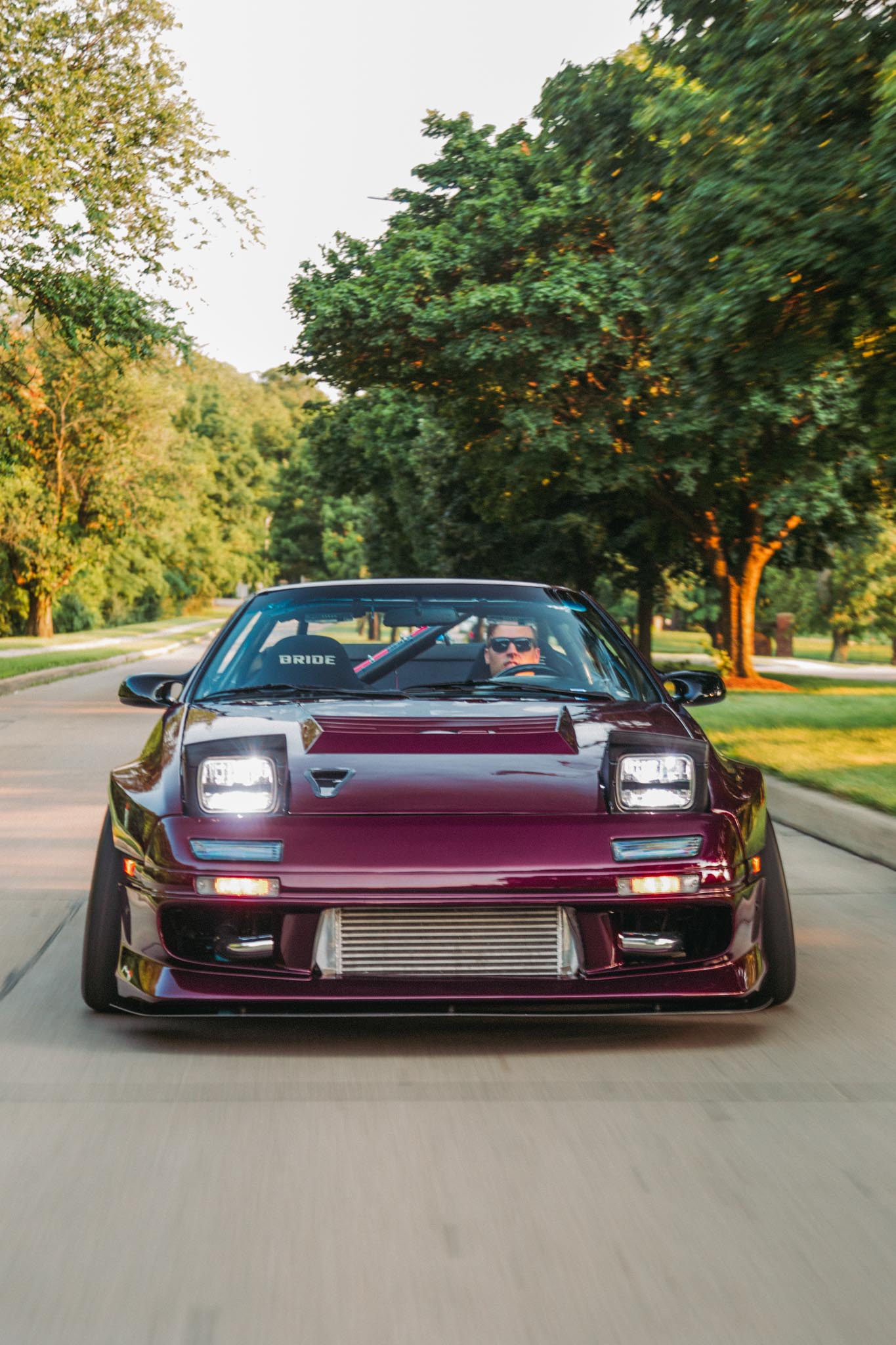
In a way, Americans did what Americans do & ‘Americanized’ drifting.
Glamorizing, monetizing, and capitalizing on it until it became… well… sideways NASCAR. Now the cost is high, the field is small, and the cars have lost that level of relatability. I mean, I guess it’s inevitable. Competition means progression. And progression, in hindsight, will kill the magical sweet-spot almost every time.
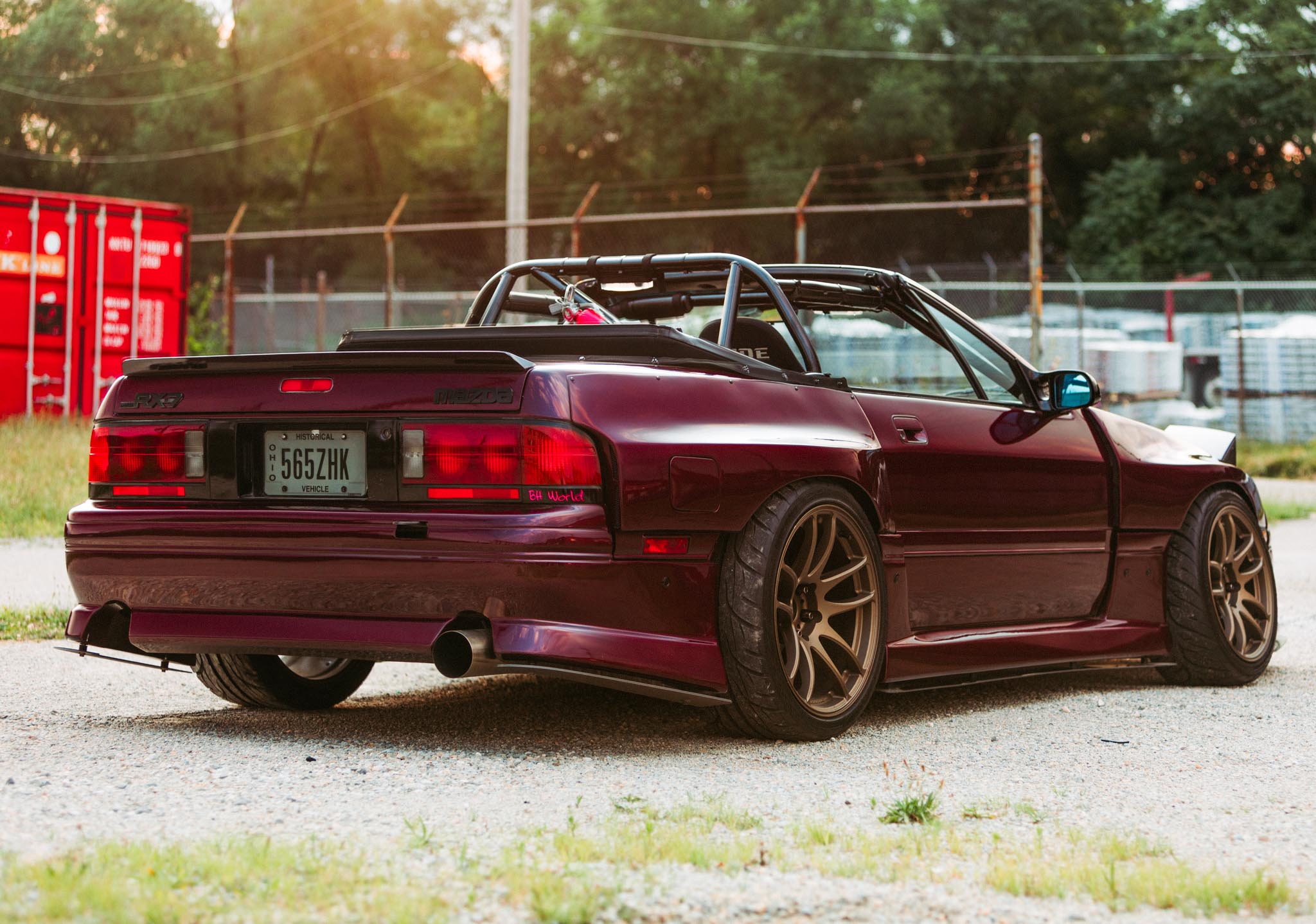
So with this FC RX-7 convertible…
JB Guillotte’s aim was to bring it back to the magic of the culture. Back to the roots. A clean street car that would absolutely rip… but still be a clean street car. Since JB is a pilot, he’s all about reliability, so he really went above & beyond. The Toyota 2JZ engine was built for 1,300hp, but it’s running at 500-600hp. And by design, JB made the clutch the ‘weak link’ at 700hp, so that should be the first thing to go before anything else is harmed.
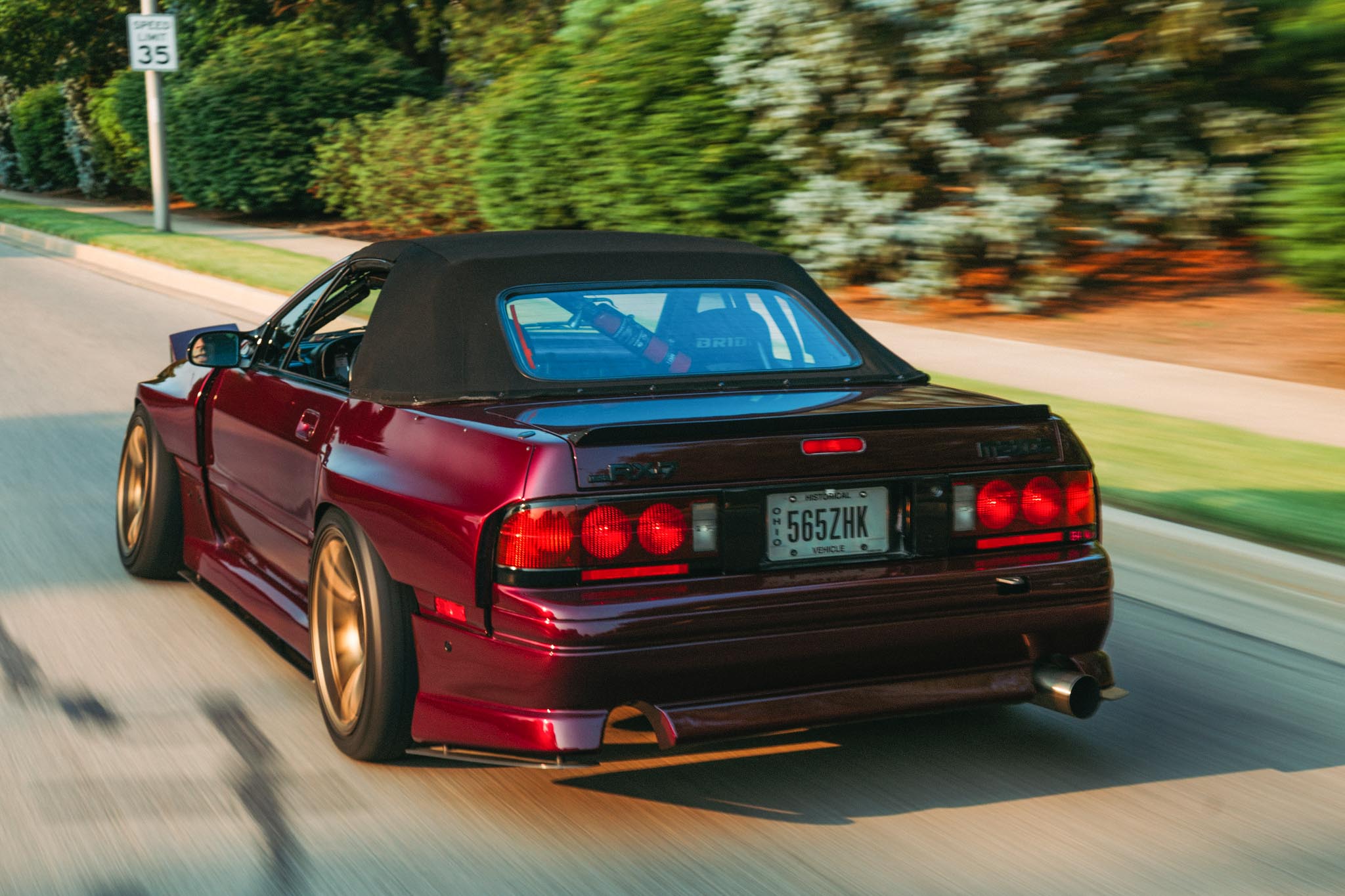
JB refused to sacrifice style in the name of reliability or functionality.
When it comes to the roots of Japanese drifting: STYLE is essential to the sport. See, the ‘American way’ will sacrifice style in the name of functionality… to get an edge in competition. But just know, if you give up one to achieve the other, you’re losing the roots of what it’s all about.
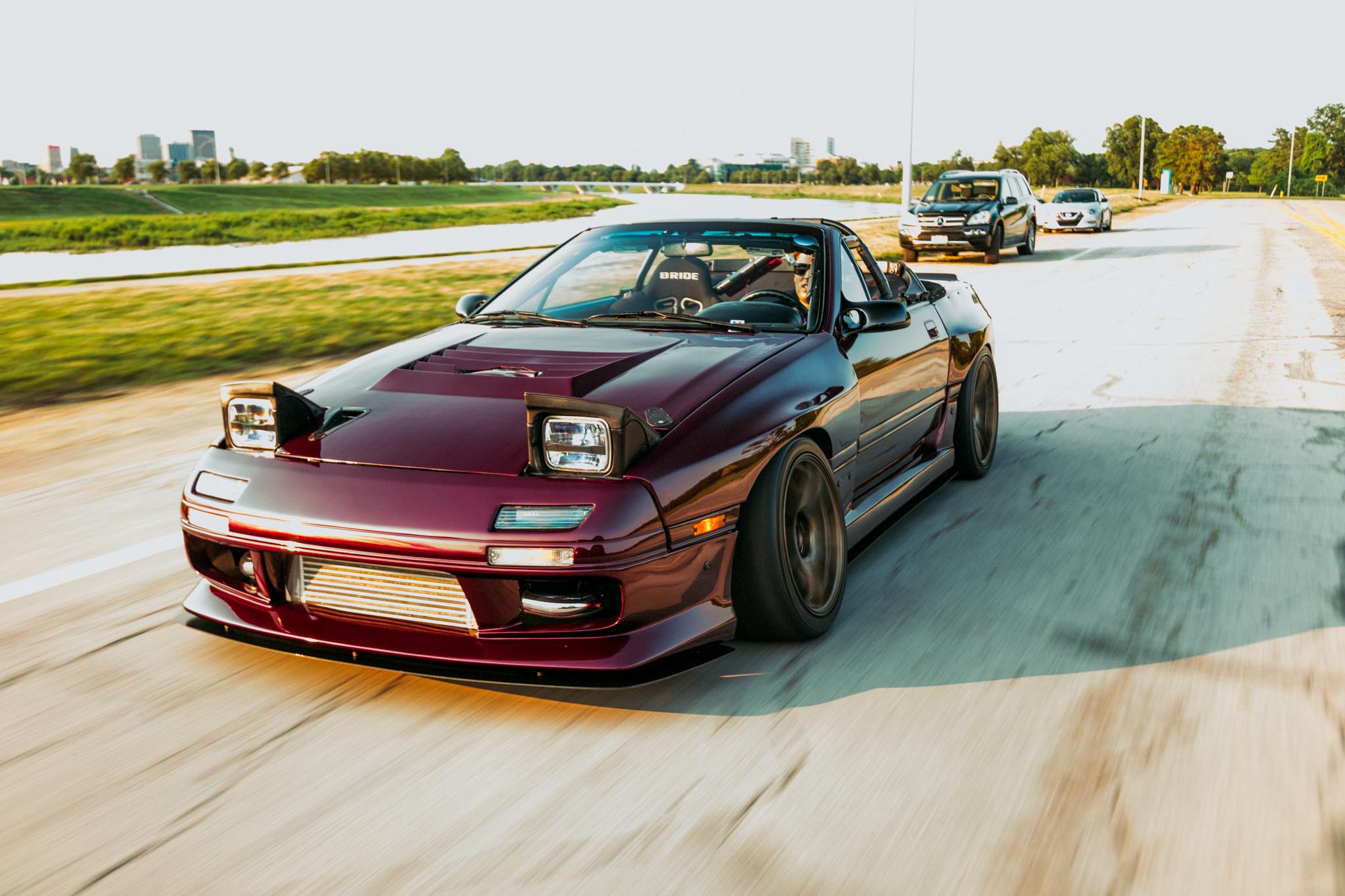
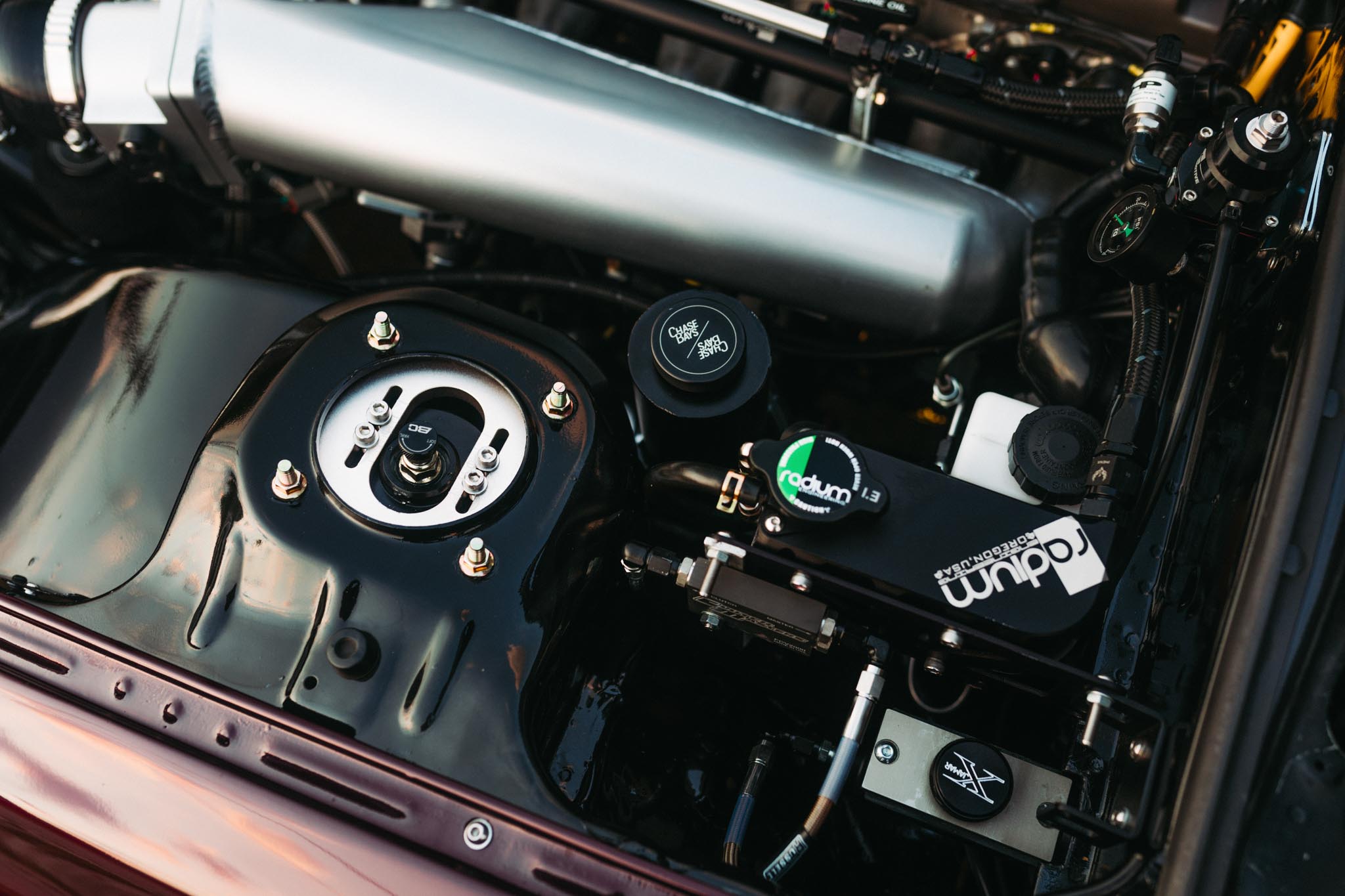
Drift Suspension -by JB Guillotte
The overall goal of your suspension is to absorb shock & transfer, and through torque, put power to the ground to get as much mechanical grip as possible.
And the great divide between grassroots and pro-level drifting is SUSPENSION… and how it’s set up between these two fields of cars.
Pro cars have longer dampers with a large amount of stroke or ‘travel’. This allows higher power cars to dial-in more grip, and keep that grip if they hit a bump or transition. They also generally sit pretty high (relatively speaking).
Most grassroots cars you see today are slammed to the ground and have little-to-no usable stroke. Especially if you’re bottoming-out your suspension on the track… that basically gives you an ‘infinite’ spring rate & you’re losing wheel speed.
If you want to be competitive and use the car’s suspension to the max, grassroots drivers need to take a different approach to lowering a car.
Simply put – the lower perch is to adjust your tire clearance, and the spring perch is used to adjust your ride height.
When you get a brand new shiny box of suspension, the first thing you should do is remove the springs and bolt the suspension (without springs) into your car while it’s in the air. You then use a jack for cycling the suspension to bottom-out on the bump stop. If your tire hits anything along the way, like fenders or wheel wells, you need to modify those parts OR raise the damper inside the lower perch. Once you’ve cleared your car, put the springs back in & lower the car using the spring perch. Helper springs will need to be used if, at full extension, the spring is not sitting snug and just bobbling around. Drive your car around – if it’s bottoming out on the bump stop, raise the car using the spring perch until that goes away.
Picking spring rates can be tricky, but most manufacturers can help, especially if you’ve got a swapped car.
The end goal of a drift suspension setup is to…
Transfer as much weight as you can to the rear-end to let the REAR of the car actually do the majority of the driving while the FRONT lifts and is used to guide the car. A big myth is that adjusting spring preload changes your spring rate or dampening rate. IT DOES NOT – it only changes where your suspension sits while your car is on the ground. All drift car springs are linear and do not change rate with compression. The same goes for your dampers – the dampers are valved for that spring rate, and it doesn’t matter where the damper piston sits in the compression cycle, it will always maintain the same rate. Adjust your suspension not to hit things under your car and/or bottom out. Hopefully, that’s simple enough, it gets way nerdier, but this is a good start.
Photos by Sam Igel II // Photos by Sam Igel II // Photos by Sam Igel II // Photos by Sam Igel II
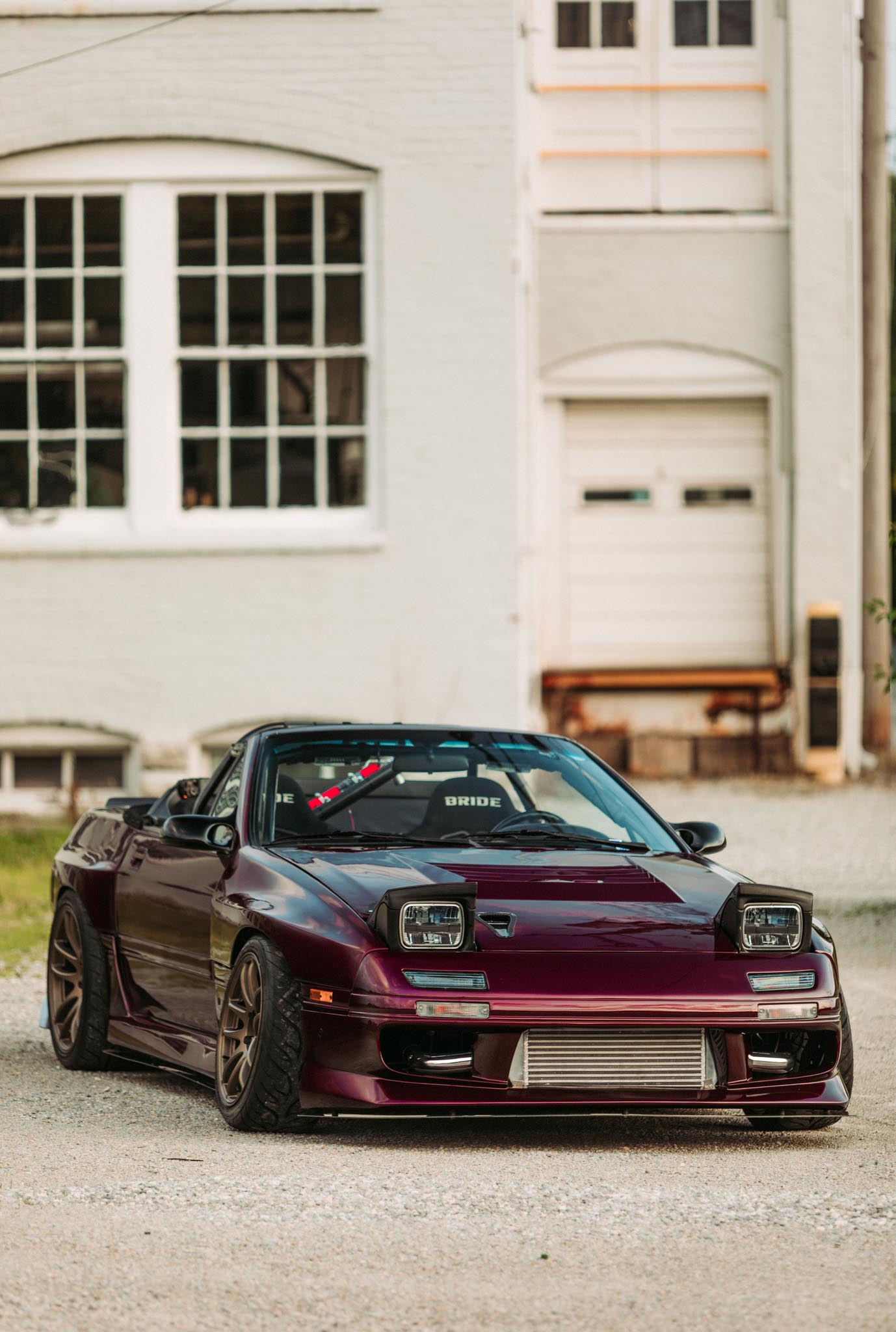
1991 Mazda FC RX-7 Convertible
Engine
JDM Toyota 2JZ-GTE VVTi built by Accelerated Performance
CP Forged piston set 9.0:1 – 3.406” bore
BC 6305 HD ARP 2000 rod set
Manley 330lb/in valve springs
Ferrea locks
Line 2 Line APC piston coating
ARP 8740 main & head stud set
HKS 1.5 stopper head gasket
New OE Toyota oil sprayers
OE crankshaft polished & straightened by Callies
Fluidampr engine damper crank pulley
BC adjustable exhaust cam gear
GReddy timing belt
DriftMotion billet timing belt idler & serpentine pulleys
Sound Performance intake manifold & 3” throttle body
APEXi 3.5” power intake
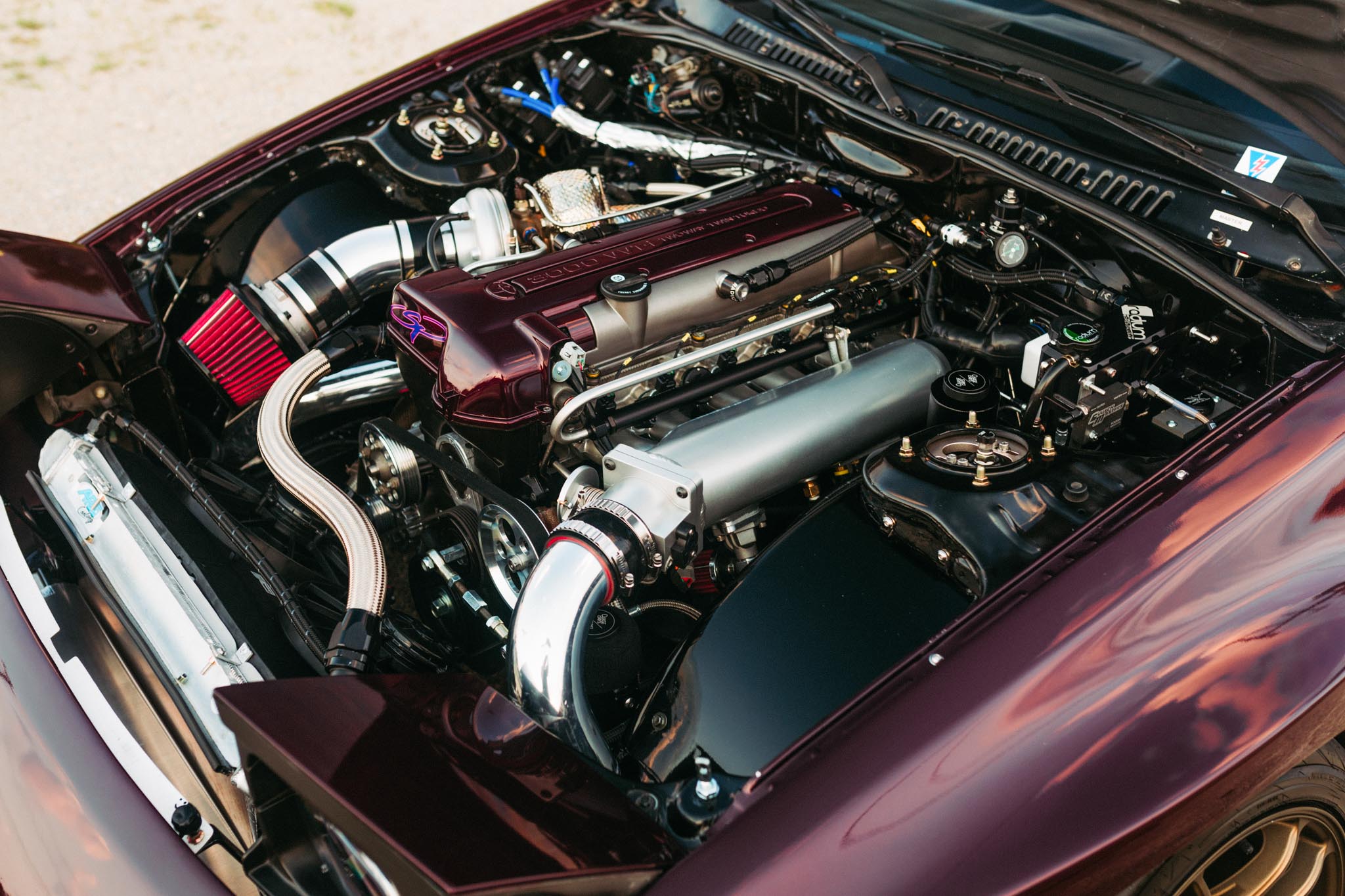
Turbo / Exhaust
BorgWarner EFR 7670 turbo 1.05 A/R twin scroll T4
FutureFab T4 exhaust manifold
Twin TiAL sport 38mm wastegates w/12lb springs
Custom 3”-to-4” stainless exhaust
Vibrant 12810 intercooler
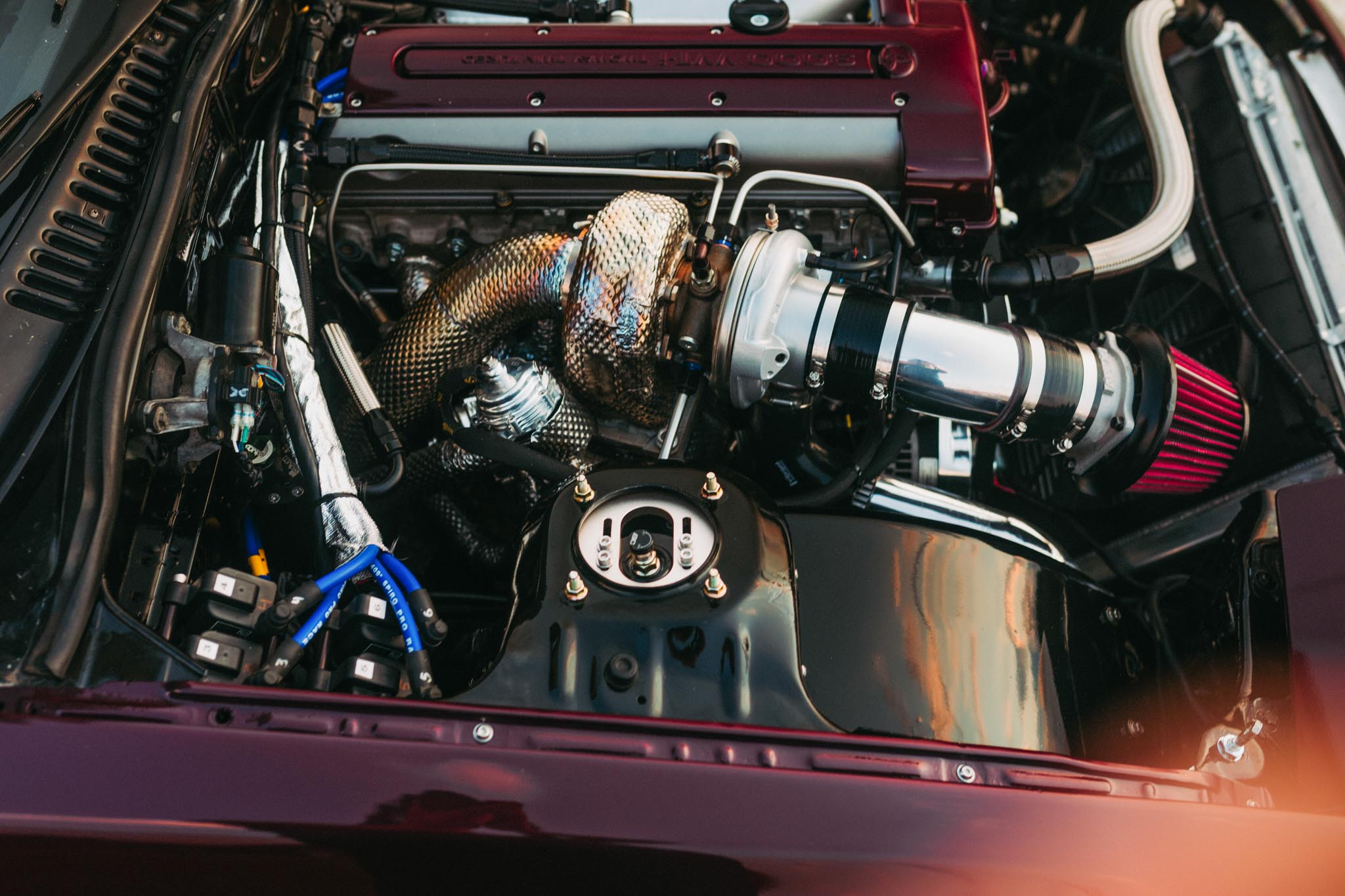
Electronics
Tuned by Sound Performance, Bensenville, IL
Wolf Motorsports wiring mil-spec race wire harness
ECU Master EMU, PMU 16, ADU 5, and 12-button CAN keypad
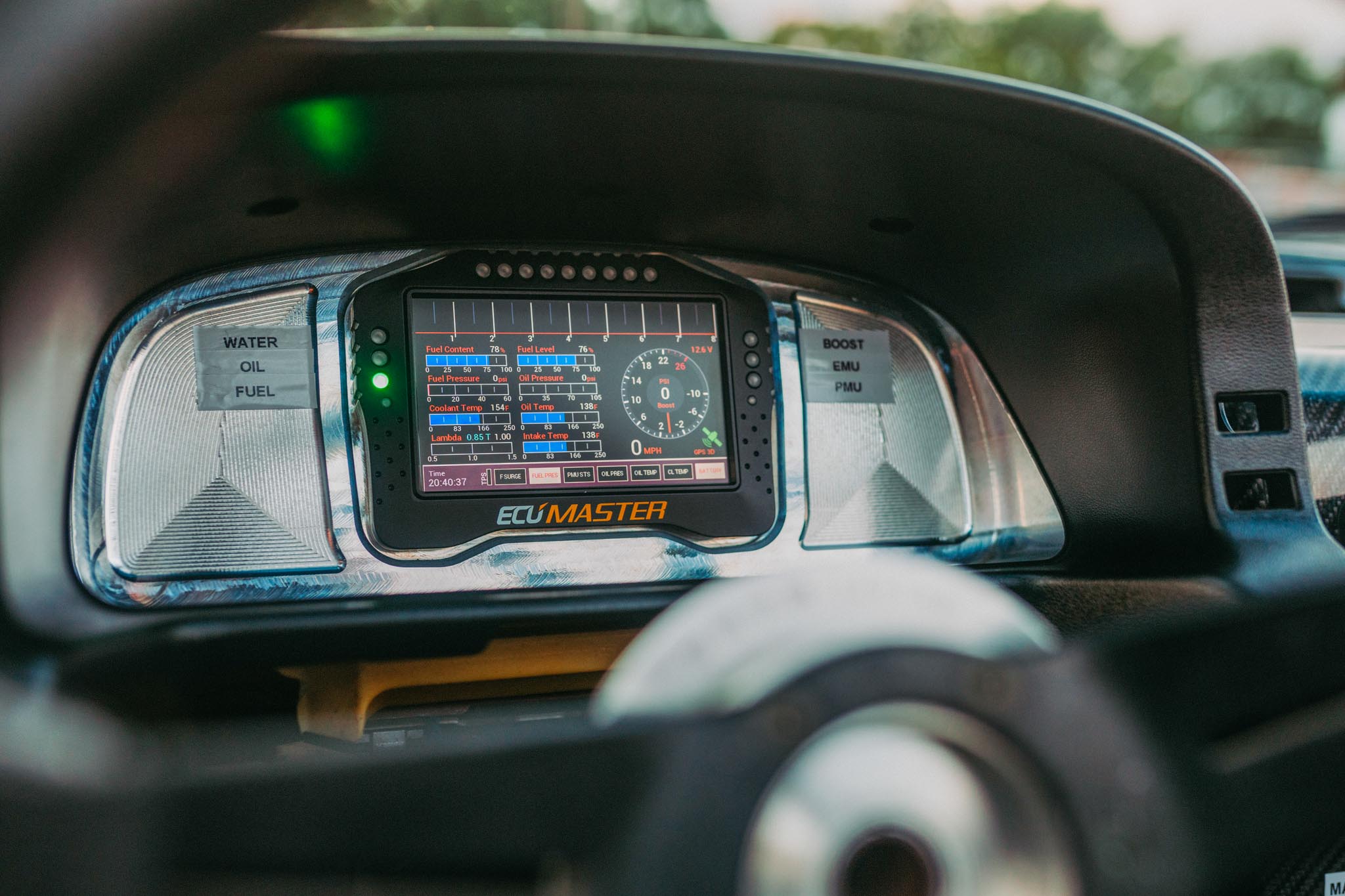
Cooling
AFCO dual-pass high-flow front radiator
Griffin rear radiator
Mishimoto 160º thermostat
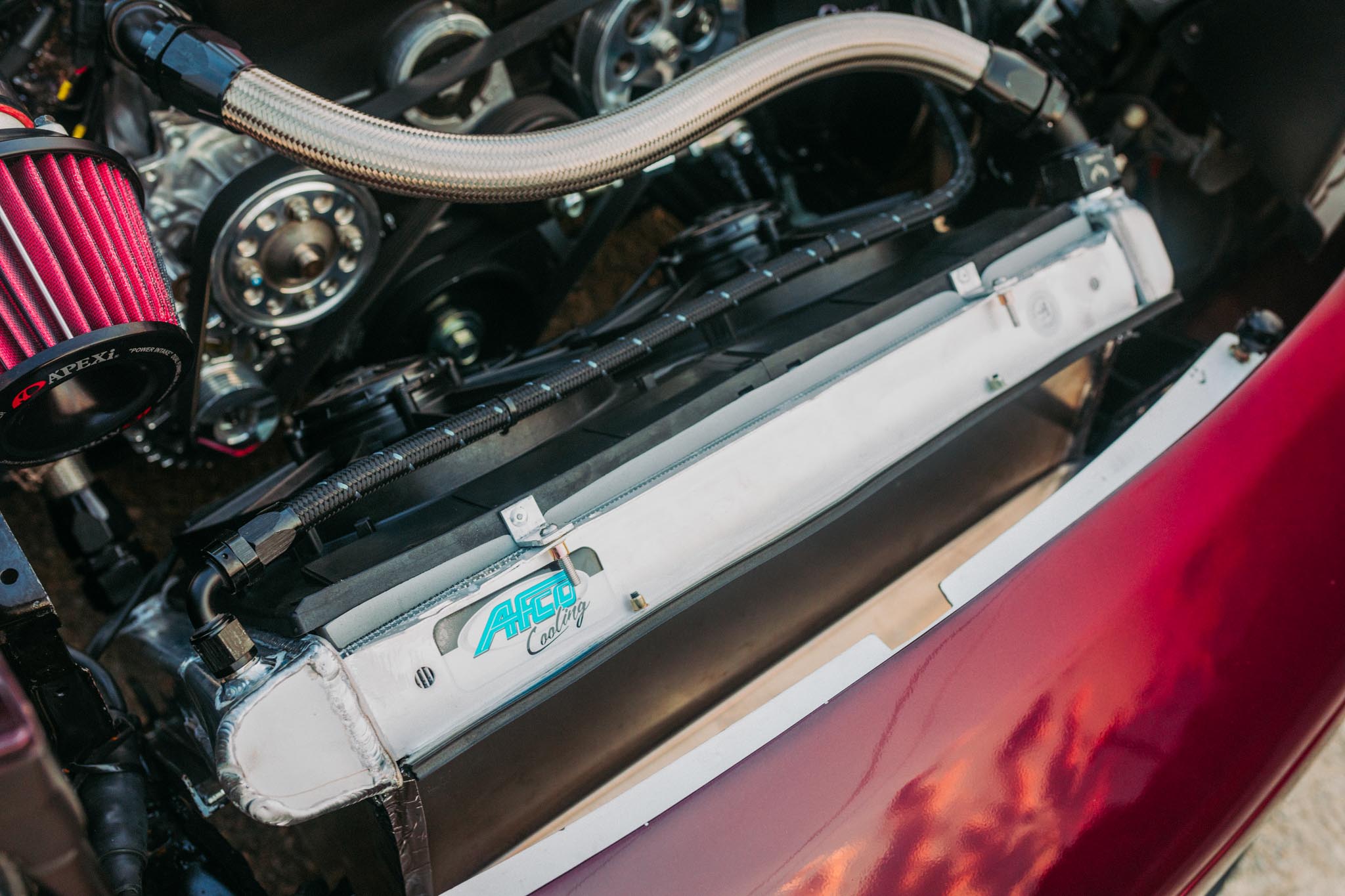
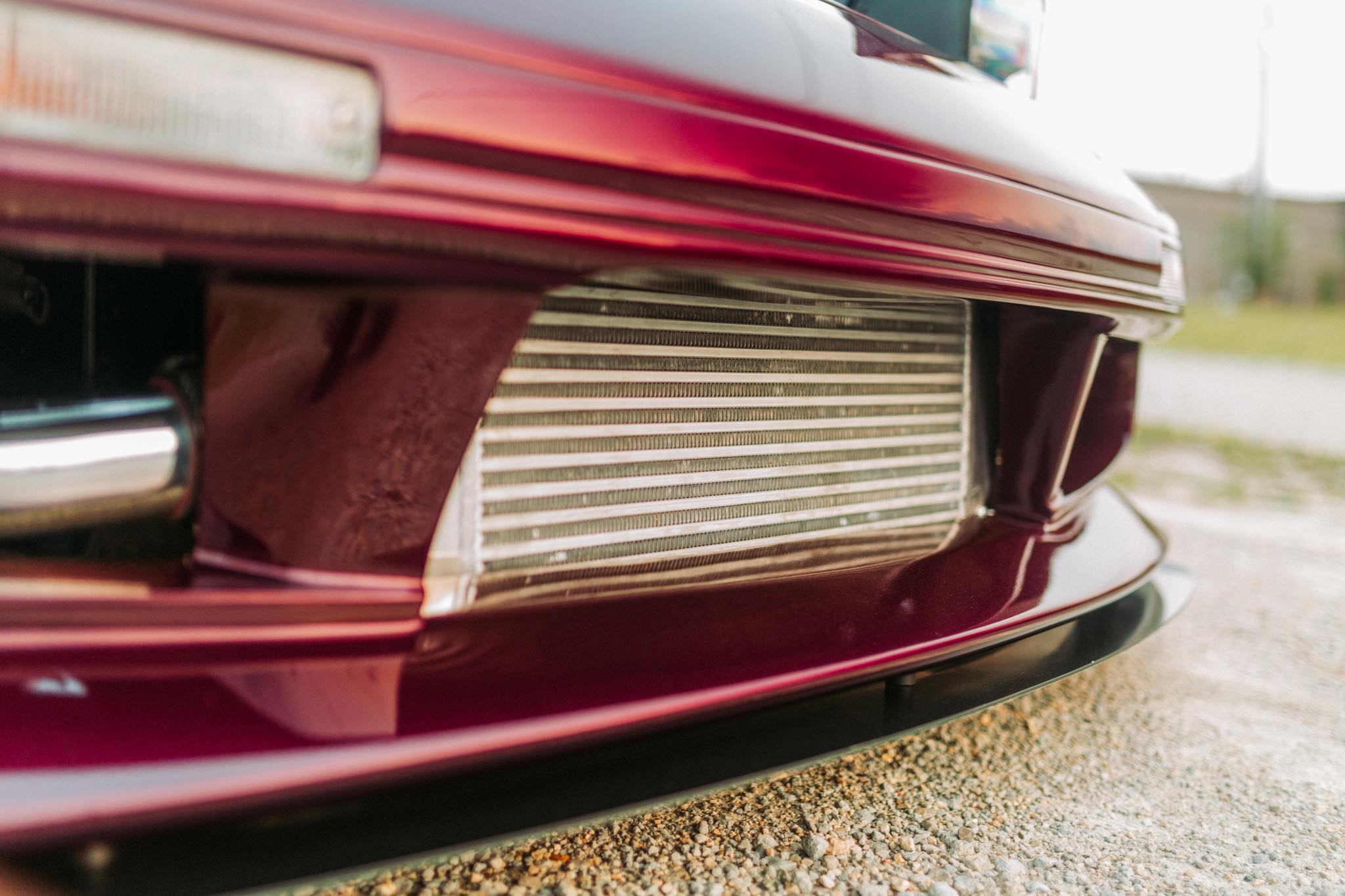
Fuel
AEM 340lph fuel pump (lift)
Twin Walbro 450lph fuel pumps (surge)
Injector Dynamics 1300cc injectors
Aeromotive fuel pressure regulator
Radium fuel pressure gauge & top-feed fuel rail
E85/93 flexible tune
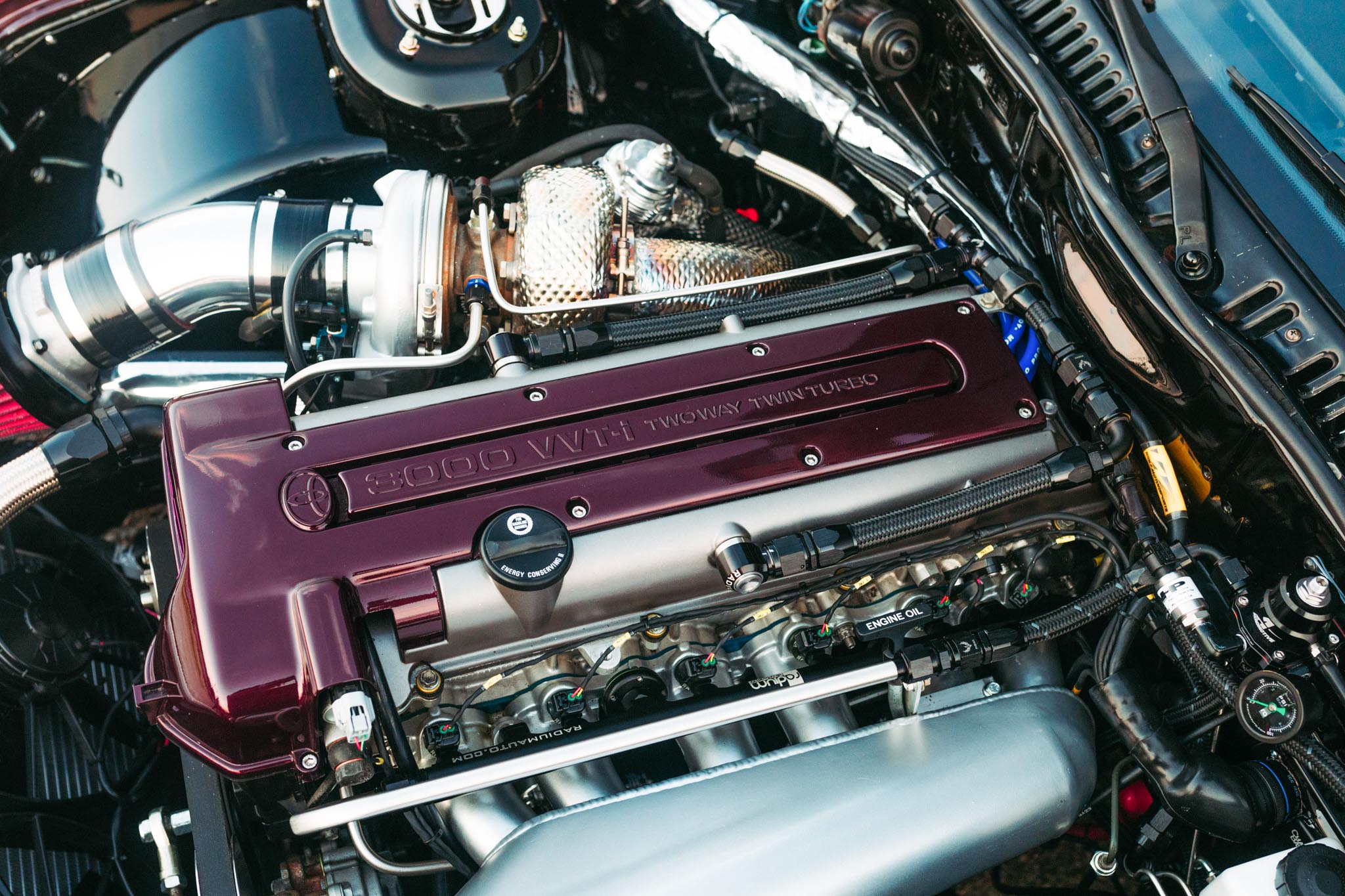
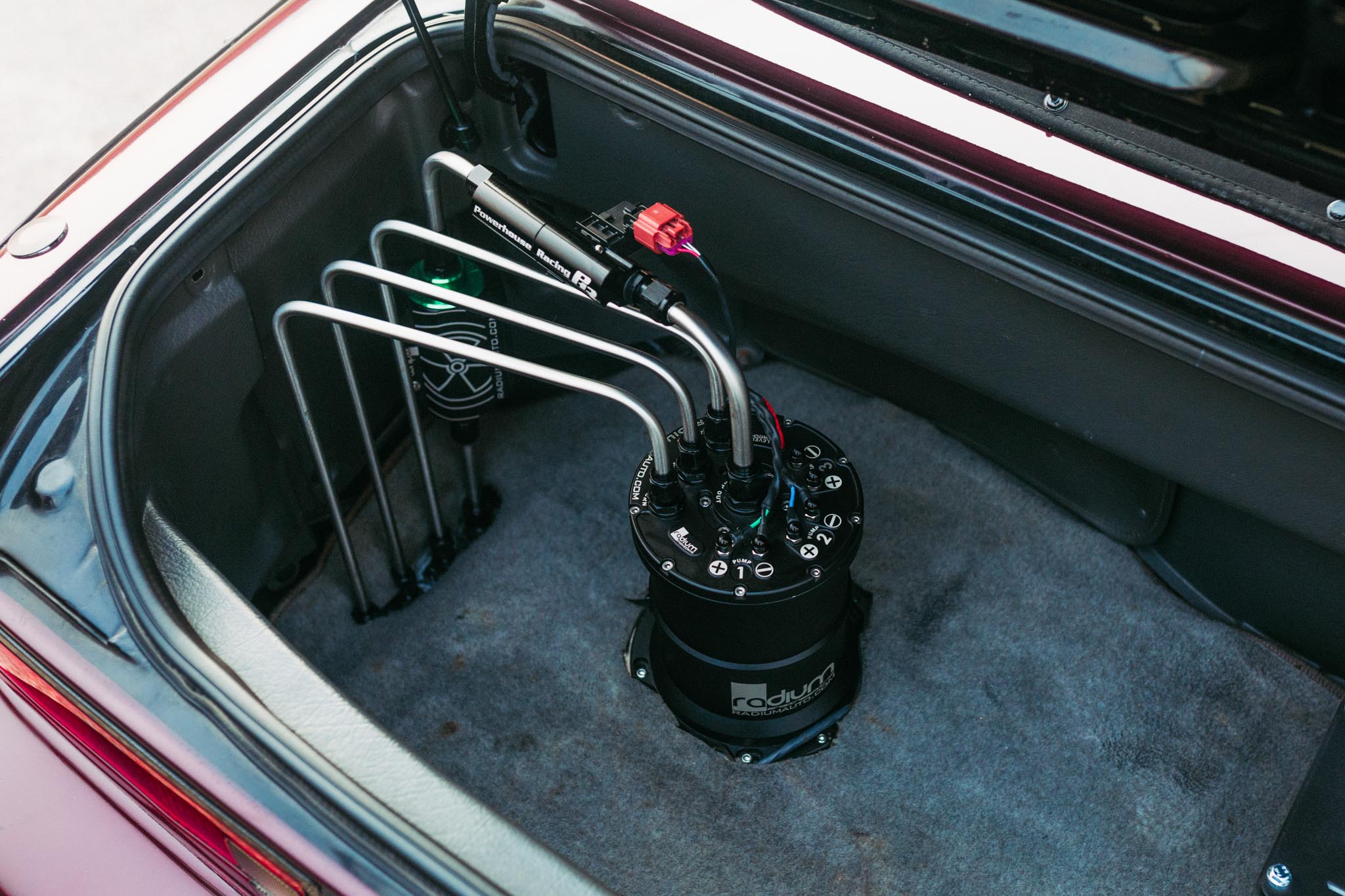
Drivetrain
New Nissan CD009/CD00A transmission
Maverick Motorsports transmission adapter & aluminum flywheel
ACT Clutch NZ2-XTG6 6-puck sprung disc w/HD plate kit
Serial9 shifter adapter
DriveShaft Shop custom carbon fiber driveshaft
Ford 8.8 differential case
Ronin Ford 8.8 swap kit
Denny’s Driveshaft 1350 chromoly diff pinion yoke
4.10 Ford Racing ring and pinion
OS Giken 2-way LSD (custom drift tune)
Driveshaft Shop pro axles & pro rear hubs
ARP extended lug studs (rear)
Delrin rear subframe bushings
Mazda Competition differential bushings
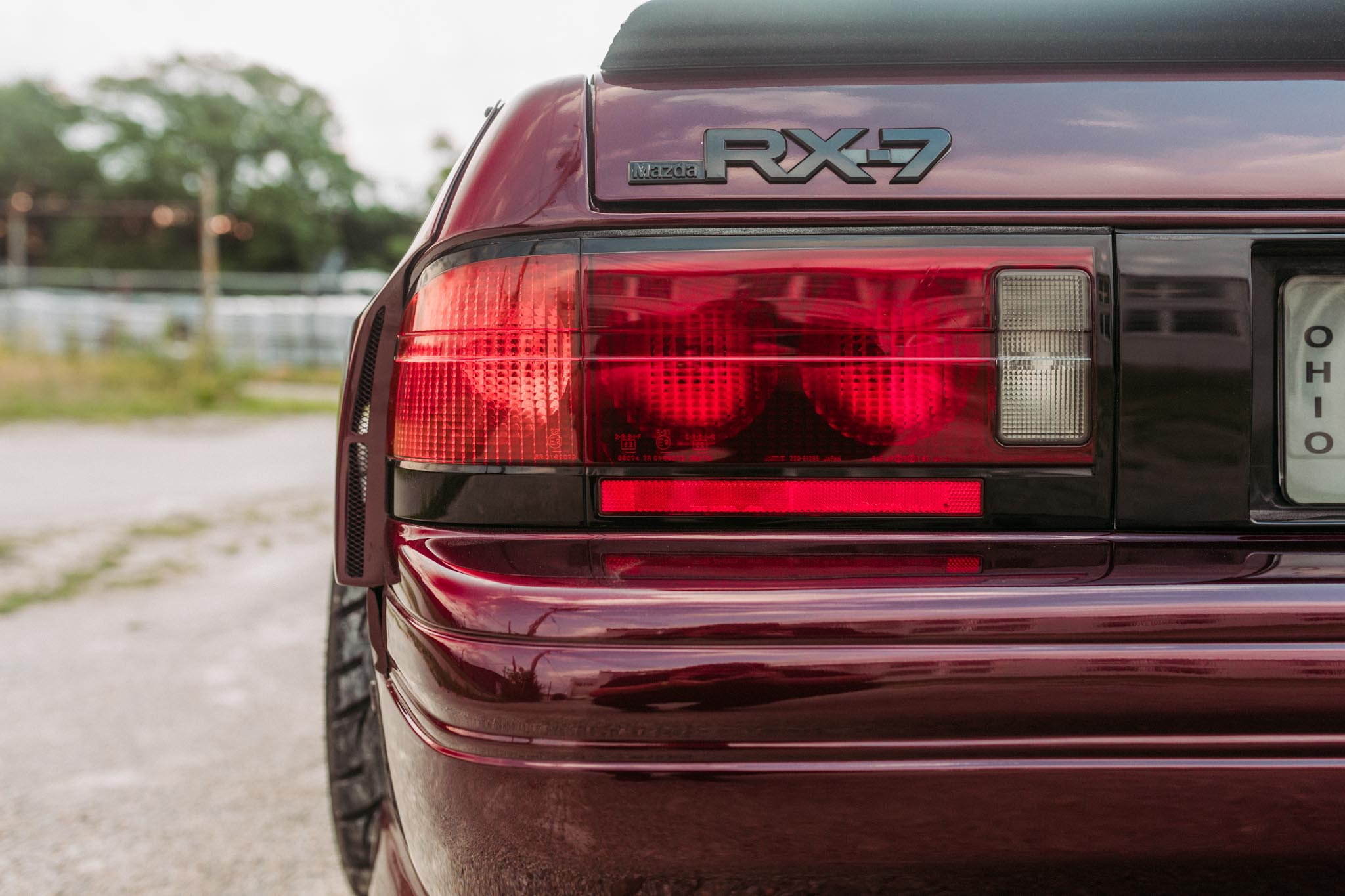
Suspension
Custom BC Racing suspension
Front
Digressive 300-150 MF1 Ø22 M12 damper
Swift 174-14 spring with 3.5” helper
Pillow Ball upper mount with camber adjustment
Lower Mounts modified for KPI by OMD SD
Rear
Linear 280-175 AR6 Ø12.5 M12 damper
Swift 227-5 spring with 3.5″ helper
Pillow Ball upper mount
Short Green bumpstop
BC Racing dampening adjustment extensions
GT-1 Japan hardened front wheel hubs
OMD front knuckles, inner tie rods, front LCAs, front sway bar brackets/links, and Super Scrubber spacers
OE Mazda outer tie rod ends
Maverick Motorsports rear suspension drop arms
MazdaTrix rear camber individual adjusters
PSM rear camber link, rear toe links, & rear trailing arm spherical bushings
Rear DTSS eliminator bushings
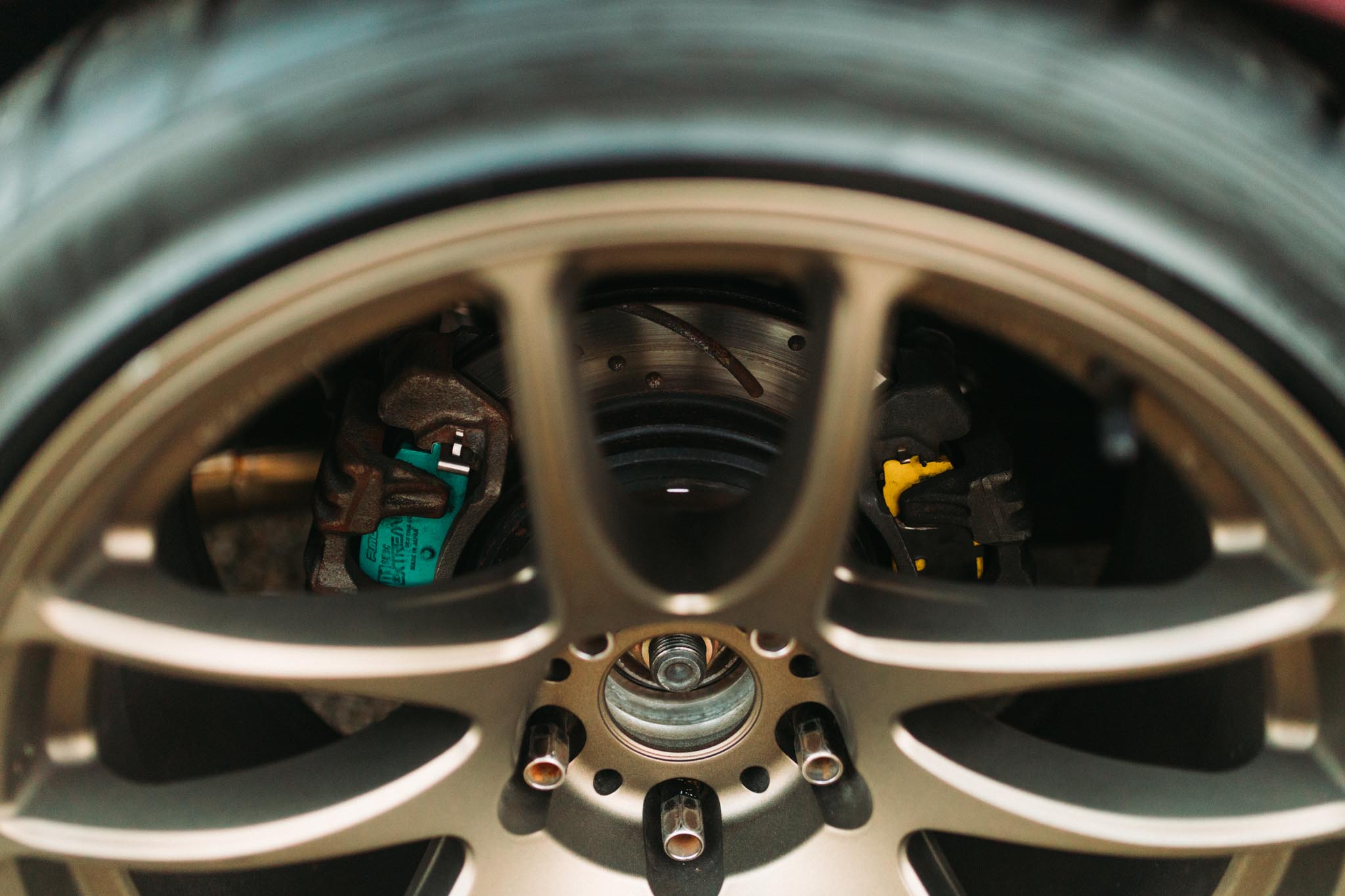
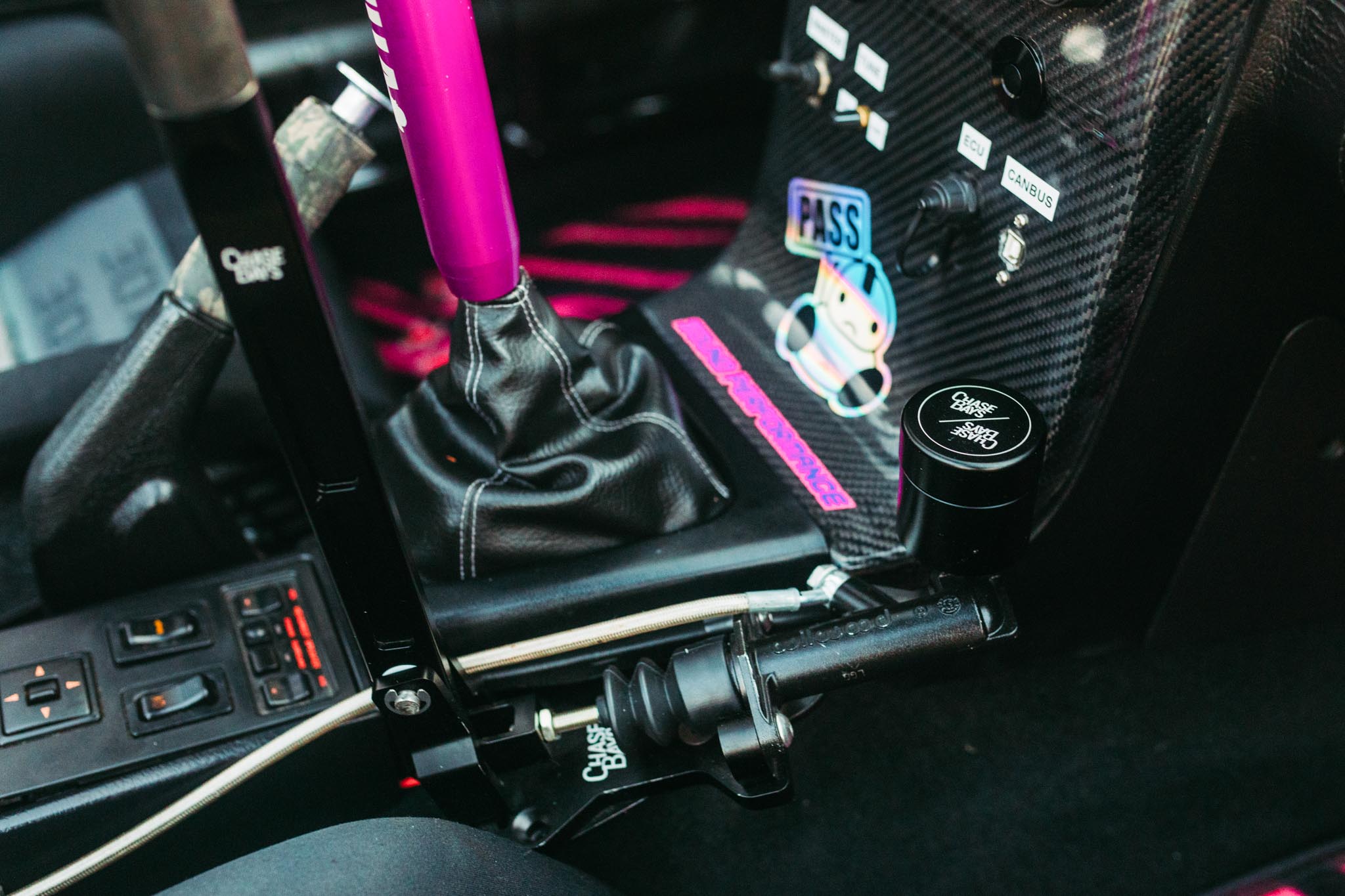
Brakes
Mazda FD RX-7 front calipers
StopTech drilled & slotted rotors
ChaseBays steel lines
Project Mu D1-Spec F front pads
EBC Yellow Stuff rear pads
ChaseBays master cylinder kit & proportioning valve
Villains rear dual caliper kit
ChaseBays Hydraulic E-Brake
Project Mu D1 Extreme rear pads for hydro
Levelride Concepts hydraulic brake bracket
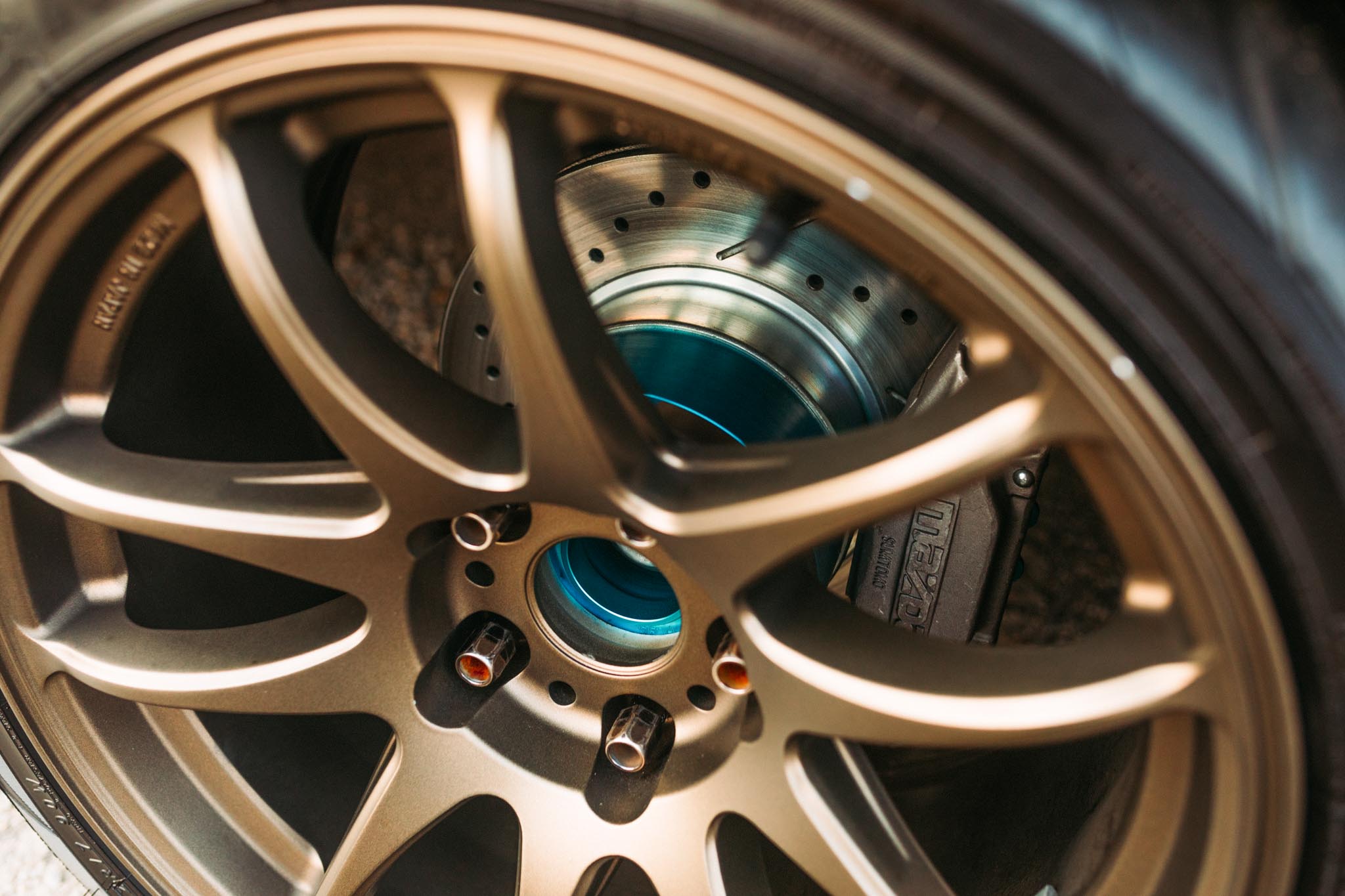
Wheels / Tires
Work CR Kiwami bronze 17×9.0 +17 front
Work CR Kiwami Bronze 18×9.5 +0 rear
Federal RSRR 235/40/17 front
Valino Grieva 265/35/18 rear
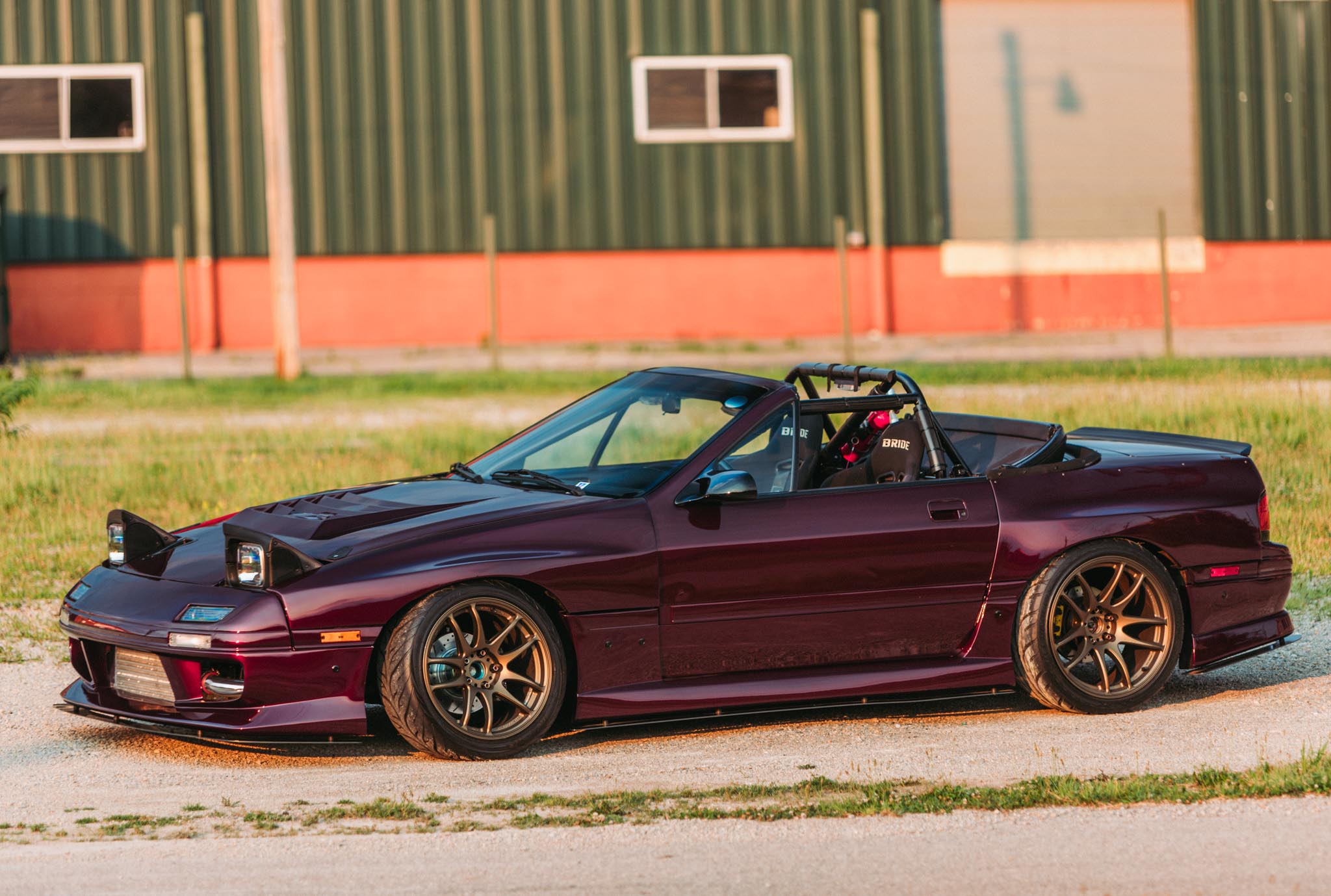
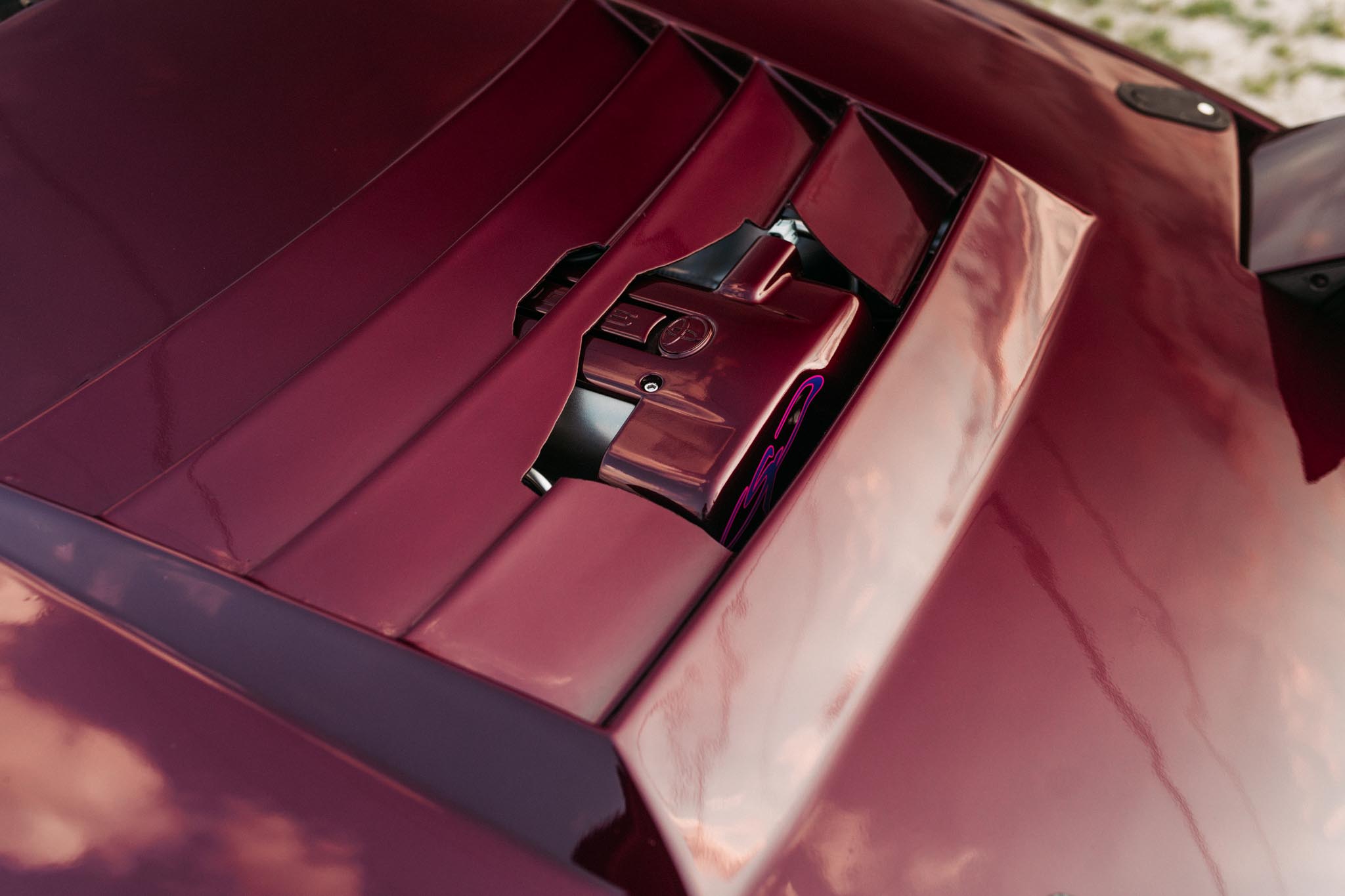
Exterior / Aero
Mazda 23E Artvin red paint
Foresight Japan T1 aero kit & 60mm front/rear over-fenders
FRP vented hood
Custom splitters
Spoiler King rear spoiler
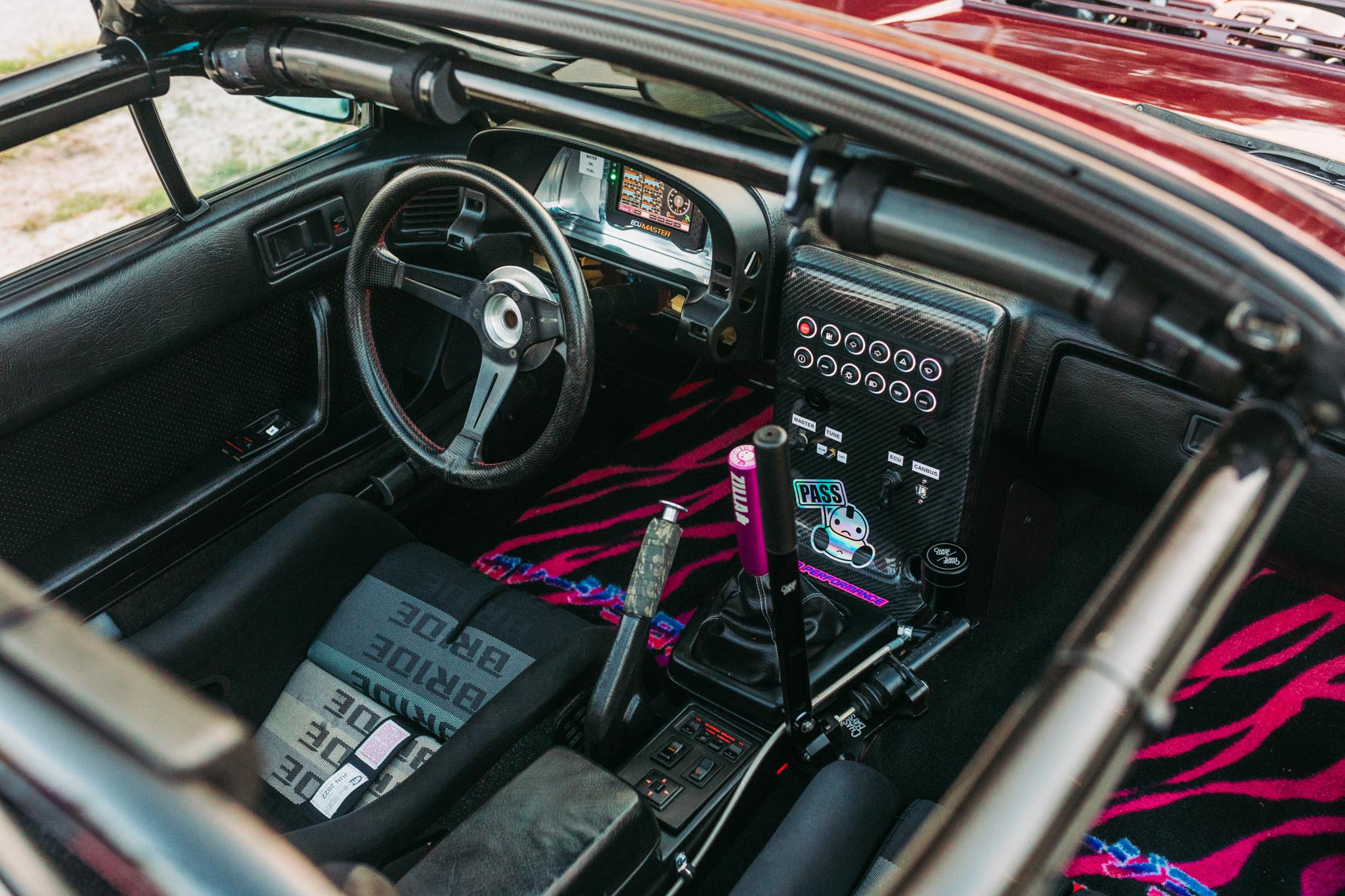
Interior
Custom cage
Bride Zeta III seats
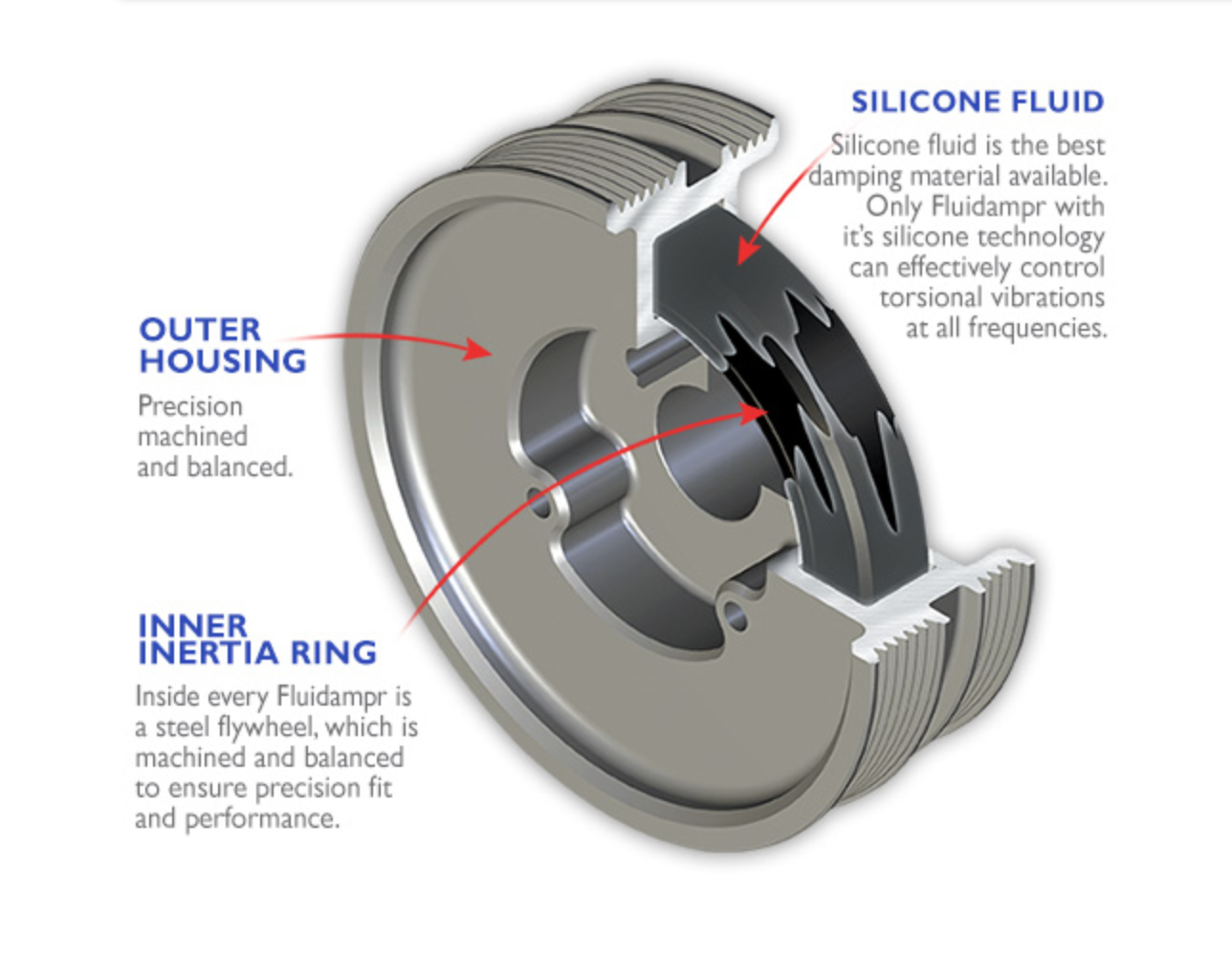
This car is running a Fluidampr engine damper crank pulley… What is it??
Fluidampr is a top-tier torsional vibration damper. Its function is to provide durability to the engine by controlling destructive torsional vibration.
What is torsional vibration?
Torsional vibration is exemplified by the end-to-end twisting & rebounding of the crankshaft… caused by combustion. The harmonic balancer (damper) controls the twist to achieve durability & efficiency. Not all are constructed or function the same, and a side-benefit to vibration control is releasing lost torque & horsepower through greater overall efficiency.
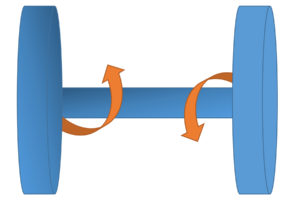
A Fluidampr performance damper is constructed from three main components:
1. The outer housing
2. The inner inertia ring
3. Silicone fluid
The outer housing mounts to the crankshaft. When combustion triggers rapid twisting & rebounding (aka torsional vibration), the outer housing and inner inertia ring will move in-&-out of phase with each other. The motion of the inner inertia ring through the silicone creates shear. Shear eliminates unwanted vibration.
Why silicone?
Viscous silicone maintains viscosity tolerance across a wide temperature range… approximately -40°F to 300°F. This provides very consistent & predictable damping properties. It also yields a far superior lifespan than conventional and/or performance rubber designs, and it does not require tuning or maintenance. Excellent heat dissipation and low friction are other key silicone advantages.
